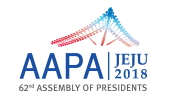|
Passenger traffic in Venezuela fell 8.5% in 2014
compared to a year earlier.
The decline, in sharp contrast to other key
economies in the region which reported growth, outpaced the 3.0% GDP contraction in
Venezuela during the same period, reflecting the growing impact of
current government policies on airlines, including restrictions
on the repatriation of currency.
IATA has urged the Venezuelan
government to reform the country�s air transport policies to avert
a further deterioration of the country�s already limited air
connectivity.
�The Venezuelan government�s policies are
crippling the air transport sector and depriving its people of the
economic benefits that it could bring. Air travel options in
Venezuela are diminishing while the country�s citizens and
businesses pay more to travel due to the negative impact of
government policies. The 8.5% fall in passenger numbers is
significant. By contrast, other key Latin American economies saw
passenger growth in the 2 to 12% range. An urgent change of
policies is needed,� said Tony Tyler, IATA�s Director General and
CEO.
Passenger Traffic
Ranking by Country, Latin America and Caribbean 2014
| Country |
Passengers |
Variation 2013/2014 |
| Brazil |
98,728,427 |
6.3% |
| Mexico |
58,119,723 |
6.8% |
| Colombia |
26,955,886 |
6.9% |
| Argentina |
19,574,495 |
3.2% |
|
Chile |
14,743,832 |
3.8% |
| Peru |
13,855,587 |
2.5% |
| Venezuela |
11,420,070 |
-8.5% |
| Dominican Republic |
10,426,839 |
11.9% |
| Source: IATA PaxIS |
IATA says that Venezuela is breaching
international agreements and the principles of the Chicago
Convention in its treatment of airlines. Two examples IATA
provided include:
- Currency controls prevent airlines from repatriating their
revenue; total blocked funds now stand at US$3.8 billion; and
-
Foreign carriers are forced to pay for fuel in US dollars instead
of Venezuelan bolivars, going against the non-discriminatory
spirit of the Chicago Convention which Venezuela has signed. This
is particularly problematic as purchasing fuel is one of the few
avenues they have for spending accumulated local currency that
cannot be repatriated.
�Venezuela�s economic woes should
not be an excuse for inaction. The government needs to take steps
to re-orient the operating environment for air carriers to prevent
an even deeper deterioration in the country�s connectivity to
global markets and international trade. A single and fair bolivar
(VEF) exchange rate for the sale of tickets and the payment of
airline fees and charges should be established. Venezuela should
also commit to a transparent consultation process with the
airlines before imposing any new taxes or regulations which affect
air carriers. And finally, a realistic and achievable payment
schedule should be established to ensure the airlines are paid the
funds currently blocked in the country,� said Tyler.
IATA,
Venezuela
|

 Mandarin Oriental Opens Special Hotel in Beijing, China
Mandarin Oriental Opens Special Hotel in Beijing, China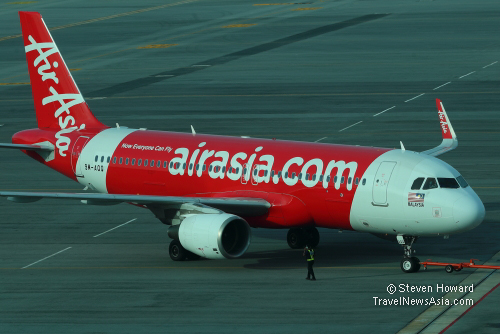 AirAsia to Launch Penang - Shenzhen and Kota Kinabalu - Shantou Flights
AirAsia to Launch Penang - Shenzhen and Kota Kinabalu - Shantou Flights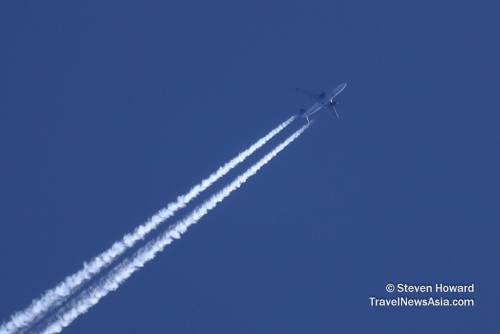 Boeing Forecasts Passenger and Cargo Needs of China's Aviation Industry
Boeing Forecasts Passenger and Cargo Needs of China's Aviation Industry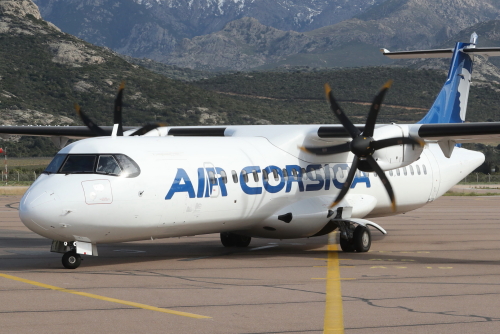 Air Corsica Takes Delivery of ATR's 1,700th Turboprop Aircraft
Air Corsica Takes Delivery of ATR's 1,700th Turboprop Aircraft Minor Hotels to Open Anantara Resort Ubud Bali in October
Minor Hotels to Open Anantara Resort Ubud Bali in October Uruguayan Air Force to Add A-29 Super Tucano Aircraft to Fleet
Uruguayan Air Force to Add A-29 Super Tucano Aircraft to Fleet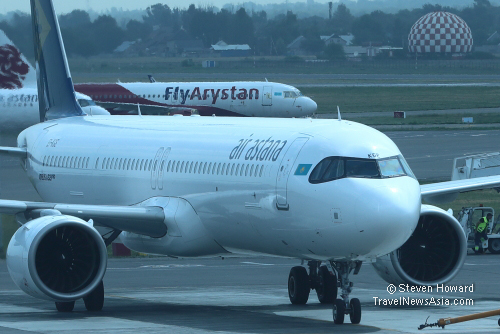 Air Astana to Increase Flights to Phuket, Thailand; Signs Codeshare Deal with JAL
Air Astana to Increase Flights to Phuket, Thailand; Signs Codeshare Deal with JAL Hong Kong Airlines to Resume Long-Haul Flights with Seasonal Gold Coast Service
Hong Kong Airlines to Resume Long-Haul Flights with Seasonal Gold Coast Service IHG Signs Two Hotels in Quang Binh, Vietnam
IHG Signs Two Hotels in Quang Binh, Vietnam Marriott Opens Moxy Hotel in Mumbai, India
Marriott Opens Moxy Hotel in Mumbai, India Torsten Richter Returns to Minor Hotels as AGM of Indonesia and Malaysia
Torsten Richter Returns to Minor Hotels as AGM of Indonesia and Malaysia Minor Set to Open World's Third NH Resort in Maldives
Minor Set to Open World's Third NH Resort in Maldives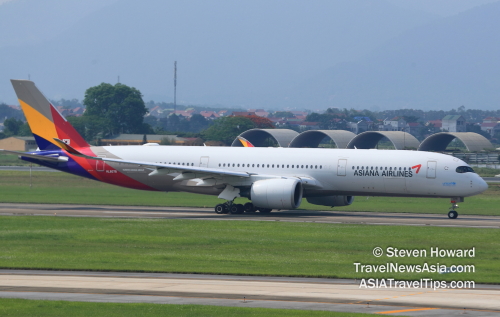 Asiana Airlines and Air Serbia Appoint APG as GSA
Asiana Airlines and Air Serbia Appoint APG as GSA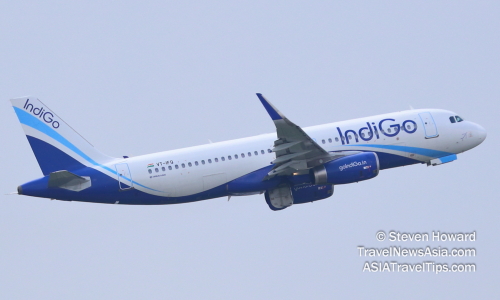 IndiGo to Launch New Delhi - Vijayawada Flights
IndiGo to Launch New Delhi - Vijayawada Flights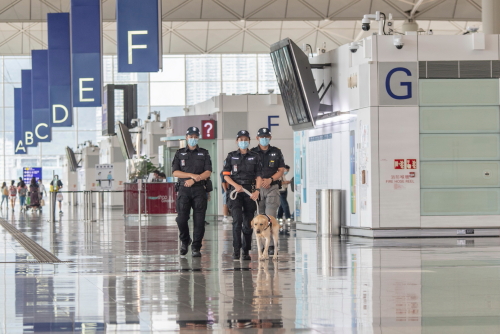 Hong Kong Airport Reports Strong Increases in Cargo and Passenger Traffic
Hong Kong Airport Reports Strong Increases in Cargo and Passenger Traffic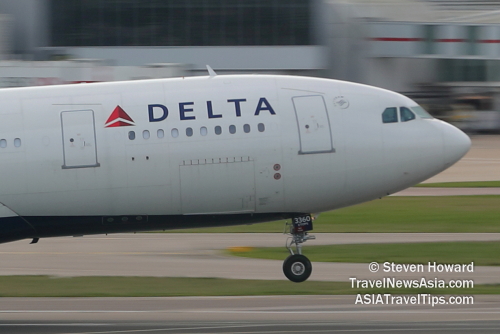 Delta Begins Rollout of Free Wi-Fi on Long-Haul International Routes
Delta Begins Rollout of Free Wi-Fi on Long-Haul International Routes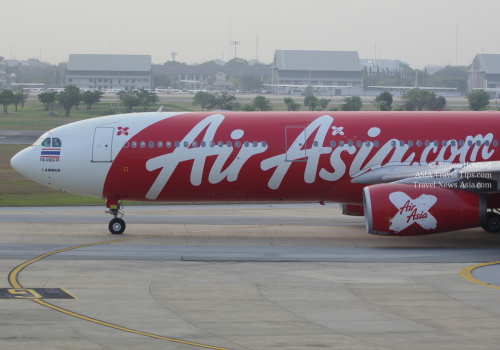 Thai AirAsia X to Resume Flights Between Bangkok and Sydney, Australia
Thai AirAsia X to Resume Flights Between Bangkok and Sydney, Australia Marriott Partners Sonder to Add Over 9,000 Rooms to Portfolio
Marriott Partners Sonder to Add Over 9,000 Rooms to Portfolio IHG Opens Hotel Indigo in Bandung, Indonesia
IHG Opens Hotel Indigo in Bandung, Indonesia IndiGo Enhances Operations with Aviobook, an Electronic Flight Folder from Thales
IndiGo Enhances Operations with Aviobook, an Electronic Flight Folder from Thales Boeing Invests in Wagner SAF Refinery in Brisbane, Australia
Boeing Invests in Wagner SAF Refinery in Brisbane, Australia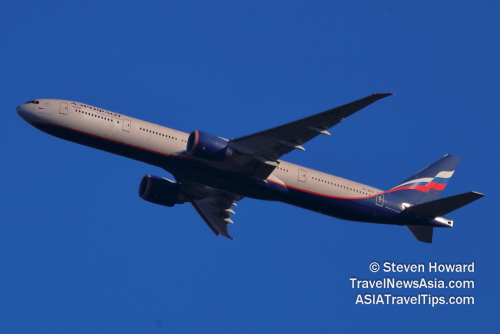 Aeroflot to Resume Flights Between Yekaterinburg and Bangkok, Phuket and Goa
Aeroflot to Resume Flights Between Yekaterinburg and Bangkok, Phuket and Goa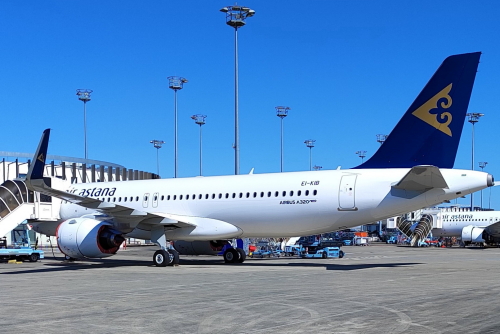 Air Astana Takes Delivery of 56th Aircraft; Confirms Plan to Launch Phu Quoc Flights
Air Astana Takes Delivery of 56th Aircraft; Confirms Plan to Launch Phu Quoc Flights Seibu Prince Rebrands Hotel in Singapore
Seibu Prince Rebrands Hotel in Singapore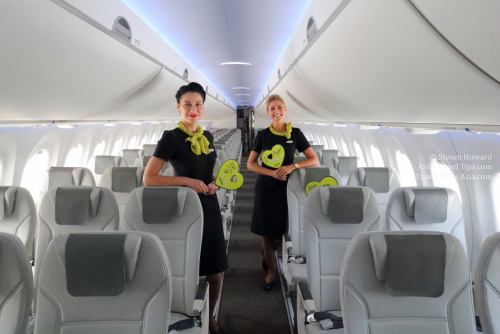 airBaltic Appoints APG as GSA in Egypt
airBaltic Appoints APG as GSA in Egypt Korean Air and Delta Air Lines Partner Habitat for Humanity to Make a Difference in Cheonan
Korean Air and Delta Air Lines Partner Habitat for Humanity to Make a Difference in Cheonan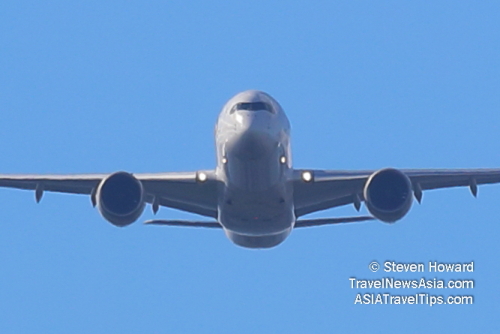 Air New Zealand, Garuda, Qantas and Singapore Airlines Begin UPR Trials on 38 Routes
Air New Zealand, Garuda, Qantas and Singapore Airlines Begin UPR Trials on 38 Routes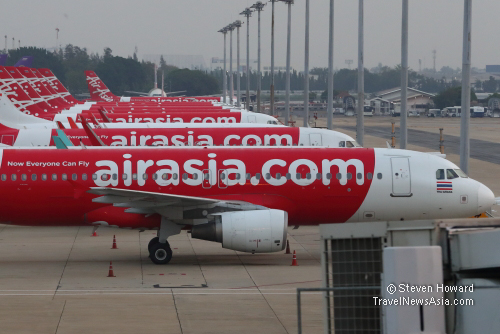 Thai AirAsia Reports Q2 and H1 2024 Results; Confirms Full-Year Targets
Thai AirAsia Reports Q2 and H1 2024 Results; Confirms Full-Year Targets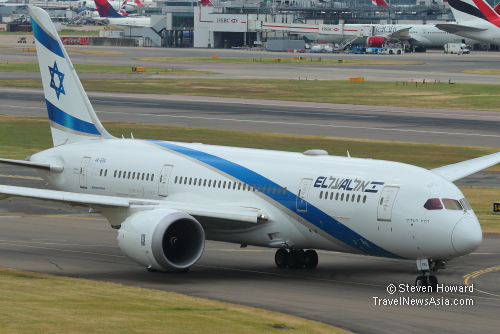 EL AL Israel Airlines Finalises Deal for 31 Aircraft
EL AL Israel Airlines Finalises Deal for 31 Aircraft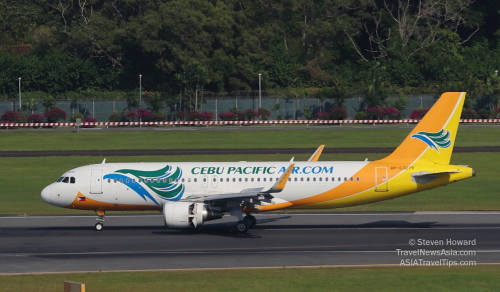 Cebu Pacific to Launch Davao - Hong Kong and Iloilo - Singapore Flights
Cebu Pacific to Launch Davao - Hong Kong and Iloilo - Singapore Flights Poland to Become Largest Operator of Apache Combat Helicopters Outside of USA
Poland to Become Largest Operator of Apache Combat Helicopters Outside of USA Singha Estate Partners Ascott for Rebranding of Two Hotels in the United Kingdom
Singha Estate Partners Ascott for Rebranding of Two Hotels in the United Kingdom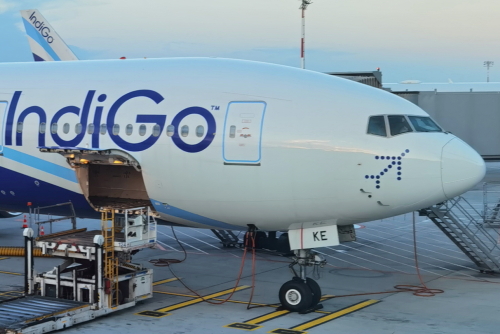 IndiGo to Launch Coimbatore - Singapore Flights; Increase Frequency of Select Services
IndiGo to Launch Coimbatore - Singapore Flights; Increase Frequency of Select Services Parveen Kumar Joins Grand Hyatt Jakarta as General Manager
Parveen Kumar Joins Grand Hyatt Jakarta as General Manager Azerai Appoints Jimmy Tran as Group Director of Sales & Marketing
Azerai Appoints Jimmy Tran as Group Director of Sales & Marketing South Korea to Strengthen Airborne Surveillance and Reconnaissance Capabilities
South Korea to Strengthen Airborne Surveillance and Reconnaissance Capabilities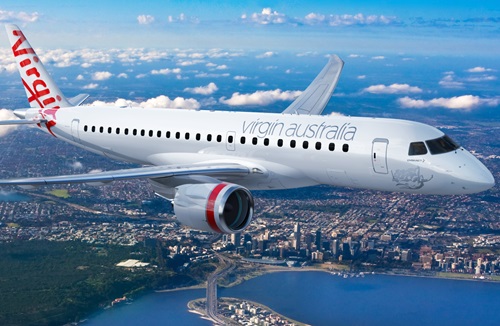 Virgin Australia to Replace Fokker 100s with Embraer E190-E2 Aircraft
Virgin Australia to Replace Fokker 100s with Embraer E190-E2 Aircraft Cross Adds Two Hotels in Bangkok, Thailand to Portfolio
Cross Adds Two Hotels in Bangkok, Thailand to Portfolio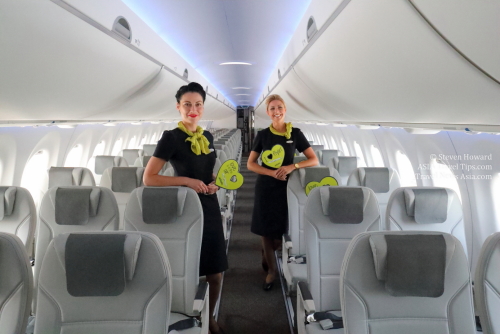 airBaltic Exercises Options on 10 Airbus A220-300 Aircraft
airBaltic Exercises Options on 10 Airbus A220-300 Aircraft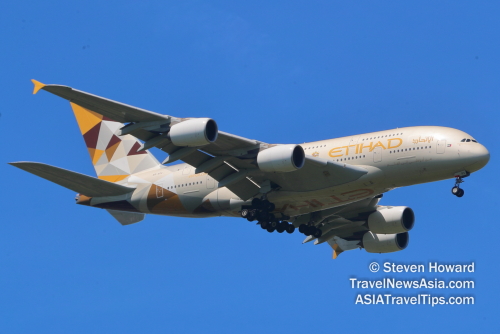 Etihad to Increase Thailand Flights; Resume A380 Service to Singapore
Etihad to Increase Thailand Flights; Resume A380 Service to Singapore Dusit Signs Hotel and Condo on Rama 3 Road in Bangkok, Thailand
Dusit Signs Hotel and Condo on Rama 3 Road in Bangkok, Thailand Cape and Kantary Hotels to Expand Portfolio with Serviced Suites in Korat, Thailand
Cape and Kantary Hotels to Expand Portfolio with Serviced Suites in Korat, Thailand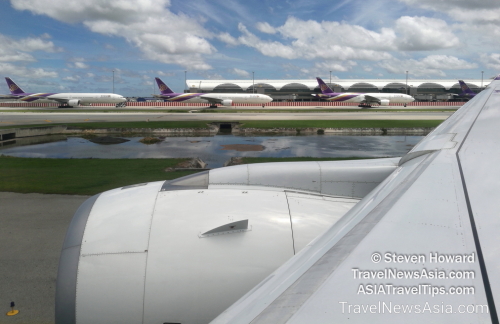 Thai Airways Reports Q2 and H1 2024 Results
Thai Airways Reports Q2 and H1 2024 Results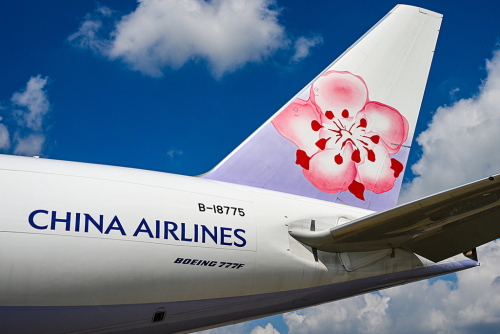 China Airlines Extends Cargo Handling Contract with FCS
China Airlines Extends Cargo Handling Contract with FCS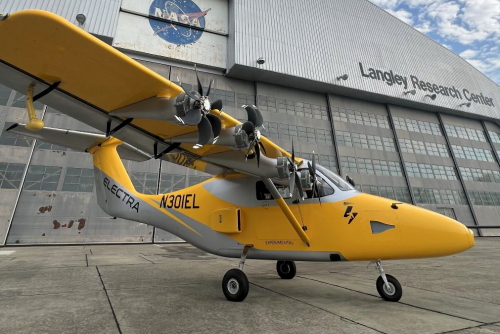 Goldfinch Becomes First Piloted Electric Aircraft to Fly at NASA's Langley Research Center
Goldfinch Becomes First Piloted Electric Aircraft to Fly at NASA's Langley Research Center Rosewood Signs Luxury 33-Suite Resort in Exuma, Bahamas
Rosewood Signs Luxury 33-Suite Resort in Exuma, Bahamas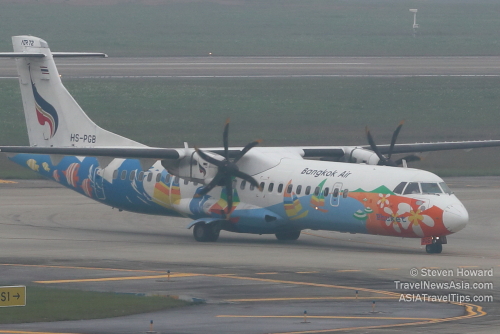 British Airways Expands Codeshare with Bangkok Airways
British Airways Expands Codeshare with Bangkok Airways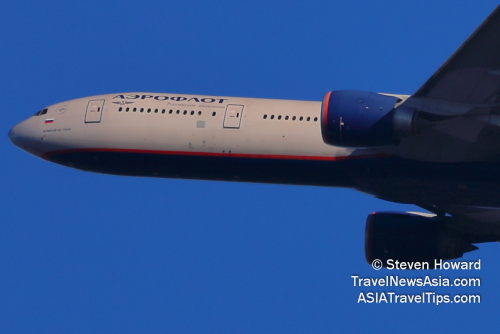 Aeroflot Unveils Most Popular International Destinations in H1 2024
Aeroflot Unveils Most Popular International Destinations in H1 2024 Marriott Executive Apartments Open on Sukhumvit Soi 49 in Bangkok, Thailand
Marriott Executive Apartments Open on Sukhumvit Soi 49 in Bangkok, Thailand Uday Rao Appointed RVP and GM of Four Seasons Hotel Tokyo at Otemachi in Japan
Uday Rao Appointed RVP and GM of Four Seasons Hotel Tokyo at Otemachi in Japan CapitaLand Ascott Trust Secures OCBC 1.5°C Loan
CapitaLand Ascott Trust Secures OCBC 1.5°C Loan Sabre Hospitality Enhances SynXis Booking Engine with Trip Protection Services
Sabre Hospitality Enhances SynXis Booking Engine with Trip Protection Services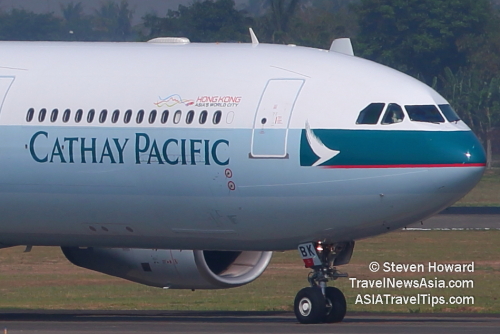 Cathay Pacific Orders 30 Airbus A330-900 Aircraft
Cathay Pacific Orders 30 Airbus A330-900 Aircraft Haytham Said Appointed GM of Four Seasons Hotel Miami
Haytham Said Appointed GM of Four Seasons Hotel Miami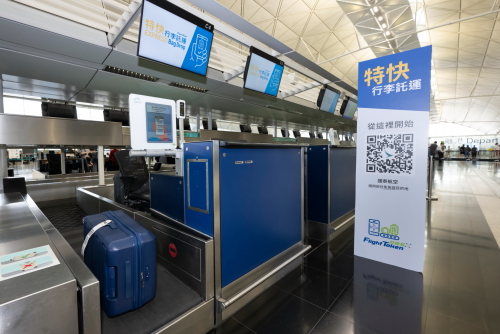 Hong Kong Airport Launches World's First Smartphone Express Bag Drop Service
Hong Kong Airport Launches World's First Smartphone Express Bag Drop Service Marriott Signs W Hotel in Hangzhou, China
Marriott Signs W Hotel in Hangzhou, China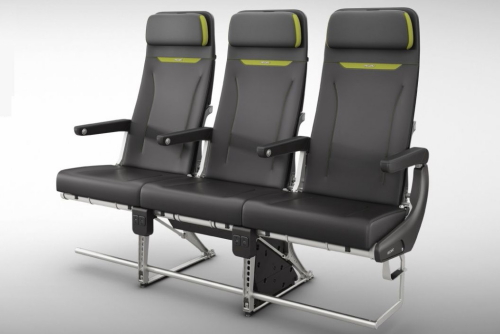 IndiGo Selects Recaro's R2 and R5 Seats for New A321neo Aircraft
IndiGo Selects Recaro's R2 and R5 Seats for New A321neo Aircraft Scoot to Take Delivery of Jalan-Jalan and Travel Kaki E190-E2s in September and October
Scoot to Take Delivery of Jalan-Jalan and Travel Kaki E190-E2s in September and October Ali Mohammed Appointed Regional Vice President and GM of Four Seasons Resort Orlando
Ali Mohammed Appointed Regional Vice President and GM of Four Seasons Resort Orlando Marriott Opens Fourth Executive Apartments Property in Bangkok, Thailand
Marriott Opens Fourth Executive Apartments Property in Bangkok, Thailand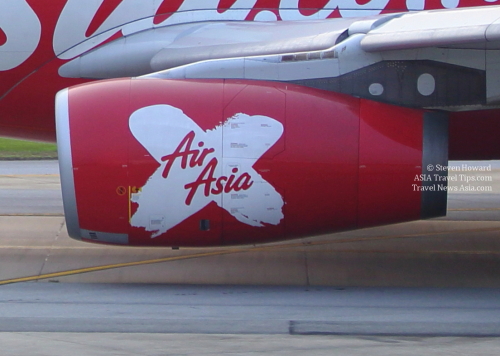 AirAsia X to Resume Kuala Lumpur - Chongqing Flights
AirAsia X to Resume Kuala Lumpur - Chongqing Flights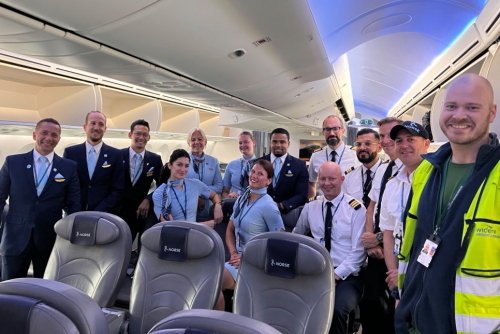 Norse Operates Non-Stop Charter Flight from Oslo to Darwin, Australia
Norse Operates Non-Stop Charter Flight from Oslo to Darwin, Australia Wyndham Reports Record H1 Growth in Asia Pacific
Wyndham Reports Record H1 Growth in Asia Pacific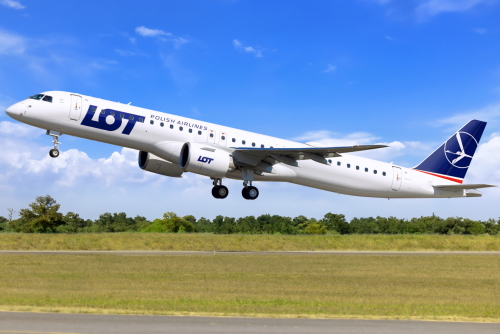 LOT Polish Airlines Takes Delivery of First Embraer E195-E2
LOT Polish Airlines Takes Delivery of First Embraer E195-E2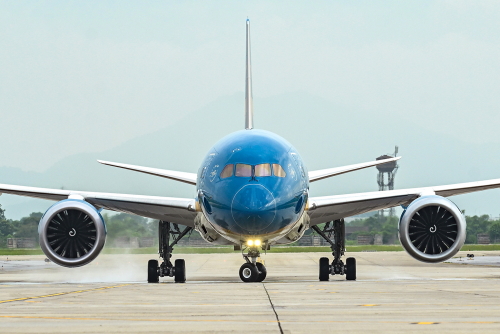 Vietnam Airlines Takes Delivery of Fifth Boeing 787-10 Aircraft
Vietnam Airlines Takes Delivery of Fifth Boeing 787-10 Aircraft Marriott Expands Executive Apartments Brand to Penang, Malaysia
Marriott Expands Executive Apartments Brand to Penang, Malaysia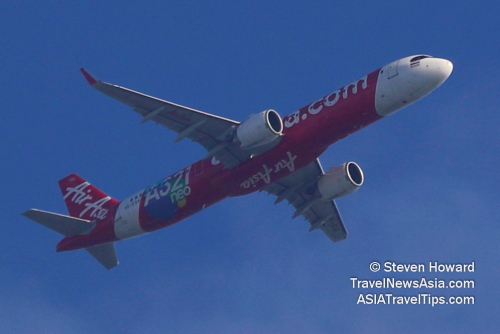 AirAsia Group Expands Fleet with Four Airbus A321neo Aircraft
AirAsia Group Expands Fleet with Four Airbus A321neo Aircraft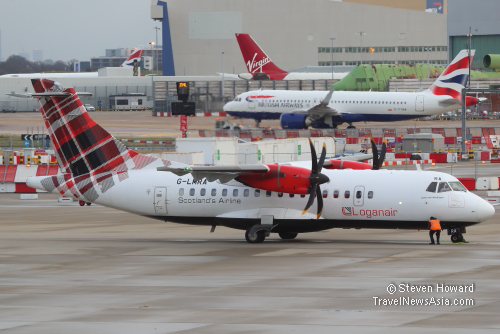 IATA Reports Latest Airline Passenger Traffic Data
IATA Reports Latest Airline Passenger Traffic Data China Airlines Signs SAF-Related MOU with Morrison Express
China Airlines Signs SAF-Related MOU with Morrison Express Fairfield by Marriott Hotel Opens in Terengganu, Malaysia
Fairfield by Marriott Hotel Opens in Terengganu, Malaysia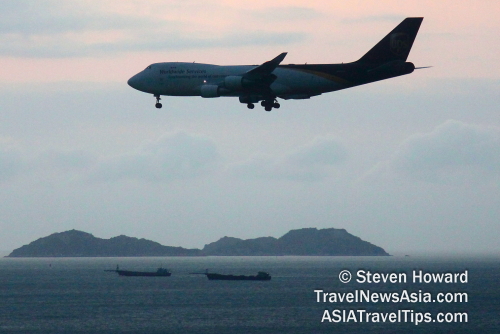 IATA Reports Latest Global Air Cargo Data
IATA Reports Latest Global Air Cargo Data Marriott Opens Fifth Autograph Collection Hotel in Japan
Marriott Opens Fifth Autograph Collection Hotel in Japan Matthew Smith to Succeed Monique Arnoux as CEO of Destination Asia
Matthew Smith to Succeed Monique Arnoux as CEO of Destination Asia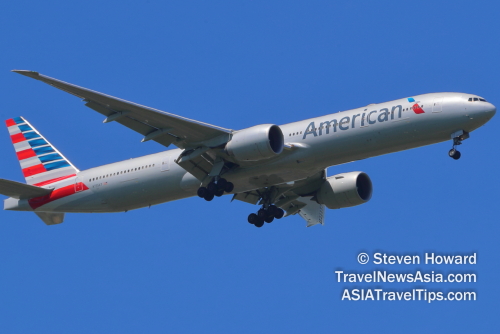 American Airlines Renews Subscription to Prism
American Airlines Renews Subscription to Prism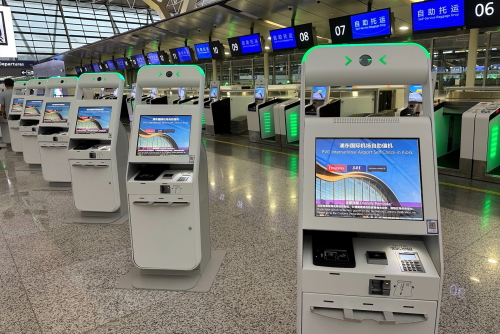 Shanghai Pudong Airport Installs 52 Kiosks and 14 Self-Service Bag Drops from SITA
Shanghai Pudong Airport Installs 52 Kiosks and 14 Self-Service Bag Drops from SITA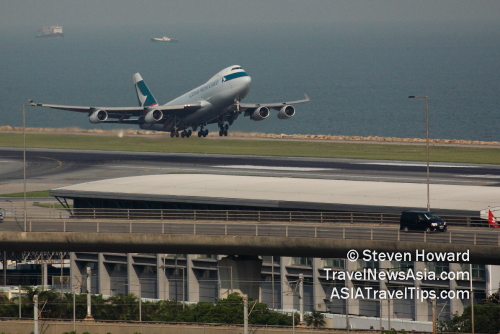 Hong Kong Airport Handled 4.3 Million Passengers and 29,590 Flight Movements in June
Hong Kong Airport Handled 4.3 Million Passengers and 29,590 Flight Movements in June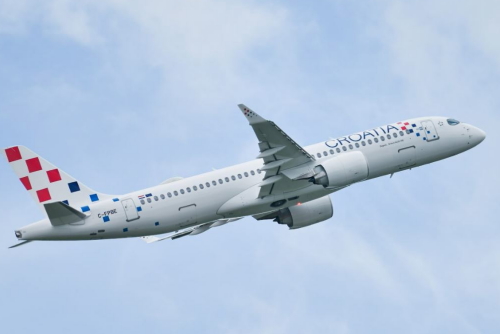 Croatia Airlines Takes Delivery of First Airbus A220
Croatia Airlines Takes Delivery of First Airbus A220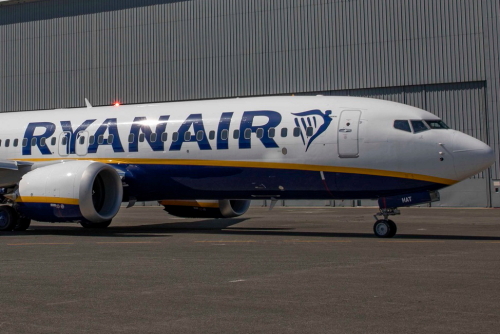 Ryanair to Implement Boeing's Jeppesen FliteDeck Pro 5.0 EFB
Ryanair to Implement Boeing's Jeppesen FliteDeck Pro 5.0 EFB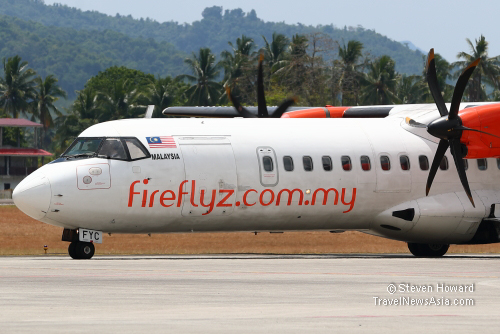 Asia Pacific Airlines Carried 28.9 Million International Passengers in June
Asia Pacific Airlines Carried 28.9 Million International Passengers in June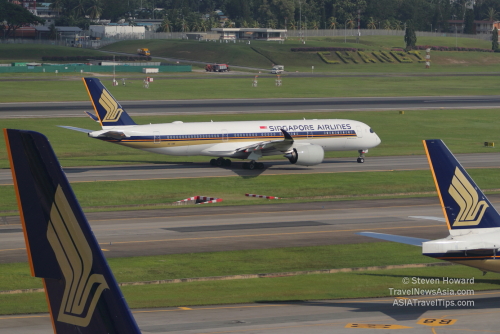 Singapore Changi Airport Reports Q2 2024 Traffic
Singapore Changi Airport Reports Q2 2024 Traffic Cat Wu Returns to Singapore as Executive Director of Revenue for Two Hotels
Cat Wu Returns to Singapore as Executive Director of Revenue for Two Hotels Langham Appoints Jack Xiao as Senior Vice President of Operations - China
Langham Appoints Jack Xiao as Senior Vice President of Operations - China NATO Selects Sikorsky X2 Rotorcraft for Integrated Platform Concept Study
NATO Selects Sikorsky X2 Rotorcraft for Integrated Platform Concept Study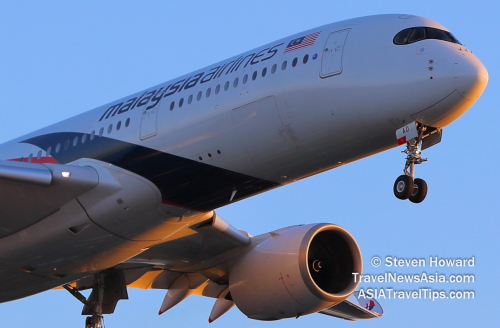 Malaysia Airlines Expands Retailing Strategy with NDC Content on Travelport
Malaysia Airlines Expands Retailing Strategy with NDC Content on Travelport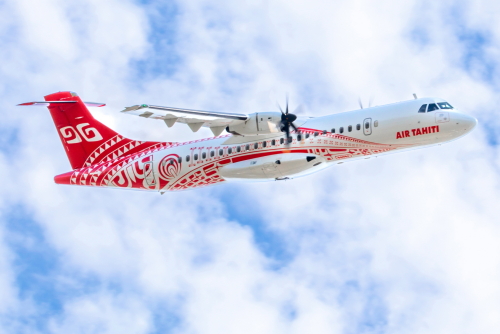 Air Tahiti Orders Four ATR 72-600 Aircraft
Air Tahiti Orders Four ATR 72-600 Aircraft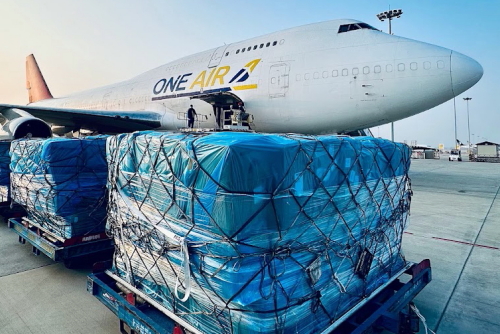 One Air to Expand Fleet with Third Boeing 747-400 Freighter
One Air to Expand Fleet with Third Boeing 747-400 Freighter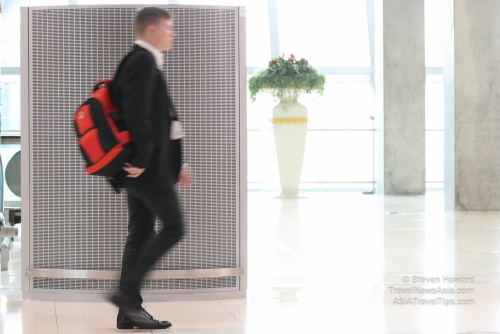 FCM Travel Expands Cytric Distribution Agreement with Amadeus
FCM Travel Expands Cytric Distribution Agreement with Amadeus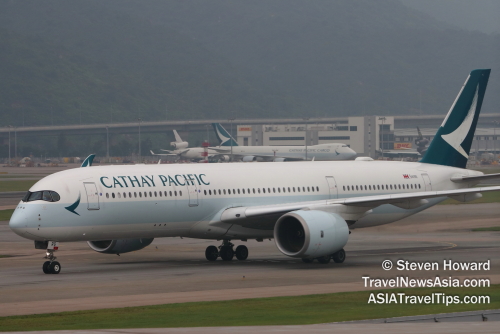 Cathay Pacific Expands 1 Ticket, 1 Tree Initiative to Include Cargo
Cathay Pacific Expands 1 Ticket, 1 Tree Initiative to Include Cargo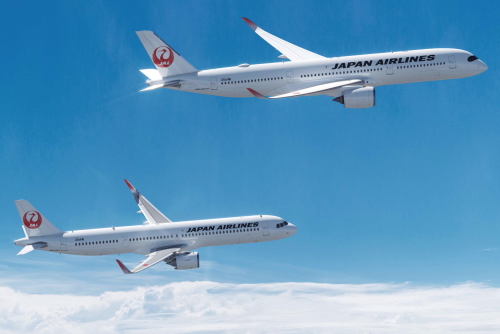 Japan Airlines Confirms Order for 20 Airbus A350-900s and 11 A321neos
Japan Airlines Confirms Order for 20 Airbus A350-900s and 11 A321neos Embraer E190 Freighter Receives ANAC Type Certification
Embraer E190 Freighter Receives ANAC Type Certification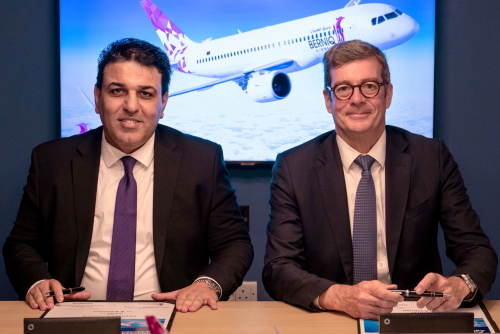 Libya's Berniq Airways Orders Six A320neo Family Aircraft
Libya's Berniq Airways Orders Six A320neo Family Aircraft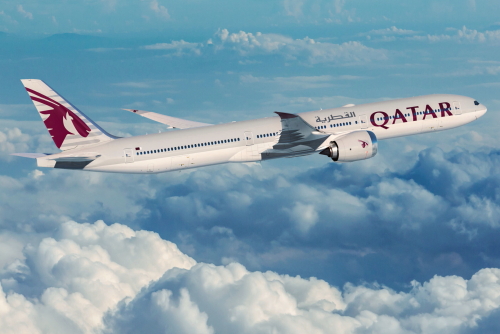 Qatar Airways Adds 20 Boeing 777-9s to Order Book
Qatar Airways Adds 20 Boeing 777-9s to Order Book Accor Signs Raffles Hotel in Tokyo, Japan
Accor Signs Raffles Hotel in Tokyo, Japan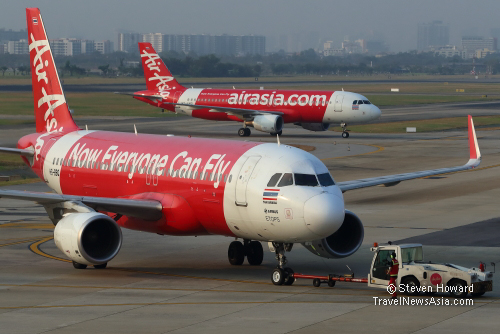 Thai AirAsia to Launch Bangkok - Hyderabad and Phuket - Siem Reap Flights
Thai AirAsia to Launch Bangkok - Hyderabad and Phuket - Siem Reap Flights Courtyard by Marriott Hotel Opens in Sapporo, Japan
Courtyard by Marriott Hotel Opens in Sapporo, Japan Qatar Airways Unveils Qsuite Next Gen at Farnborough Airshow 2024
Qatar Airways Unveils Qsuite Next Gen at Farnborough Airshow 2024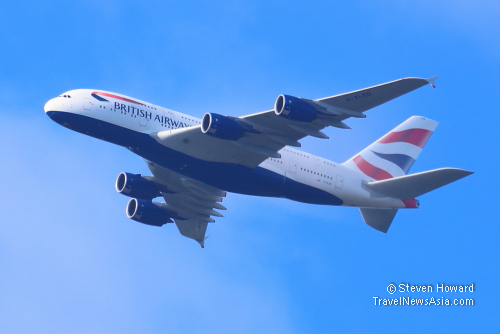 British Airways Increases Number of Funded Places in Speedbird Pilot Academy
British Airways Increases Number of Funded Places in Speedbird Pilot Academy Mandarin Oriental Signs Hotel and Residences in Bali, Indonesia
Mandarin Oriental Signs Hotel and Residences in Bali, Indonesia Minor Hotels Signs Dual-Branded Property in Yining, China
Minor Hotels Signs Dual-Branded Property in Yining, China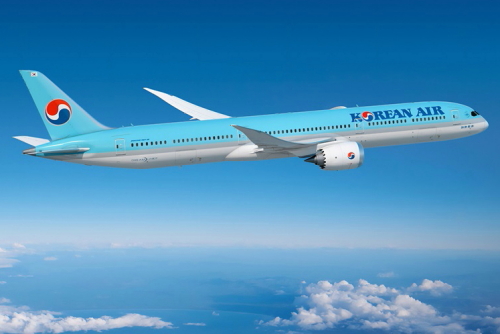 Korean Air Takes Delivery of First Boeing 787-10 Dreamliner
Korean Air Takes Delivery of First Boeing 787-10 Dreamliner Two Senior Promotions at IHG Asia Pacific
Two Senior Promotions at IHG Asia Pacific Miss International Queen 2024 (MIQ 2024) - Interview with Alisa Phanthusak, MD, Tiffany's Show Pattaya, Thailand
Miss International Queen 2024 (MIQ 2024) - Interview with Alisa Phanthusak, MD, Tiffany's Show Pattaya, Thailand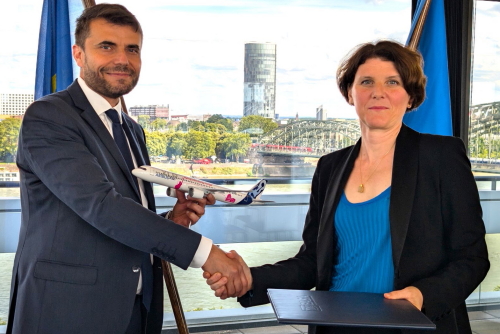 Airbus A321XLR Powered by CFM LEAP-1A Engines Receives EASA Type Certification
Airbus A321XLR Powered by CFM LEAP-1A Engines Receives EASA Type Certification New Dusit Thani Bangkok Hotel to Open 27 September 2024
New Dusit Thani Bangkok Hotel to Open 27 September 2024 CWT Upgrades Airfare Optimization Service with AI and Machine Learning
CWT Upgrades Airfare Optimization Service with AI and Machine Learning Small Luxury Hotels of the World Returns to India with MRS Group Partnership
Small Luxury Hotels of the World Returns to India with MRS Group Partnership SATS and SF Group Sign MOU to Expand Global Footprint
SATS and SF Group Sign MOU to Expand Global Footprint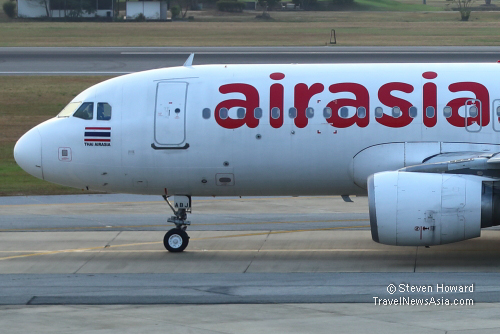 Thai AirAsia to Launch Don Mueang - Lampang Flights
Thai AirAsia to Launch Don Mueang - Lampang Flights Hong Kong Welcomed 3.13 Million Visitor Arrivals in June 2024
Hong Kong Welcomed 3.13 Million Visitor Arrivals in June 2024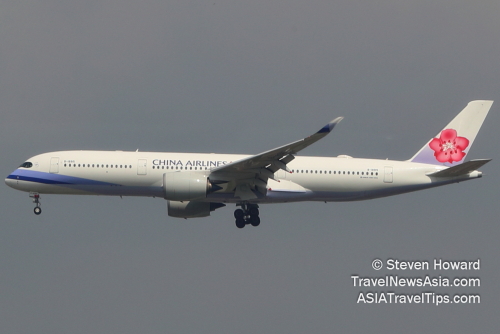 China Airlines Launches Direct Flights Between Taipei and Seattle, USA
China Airlines Launches Direct Flights Between Taipei and Seattle, USA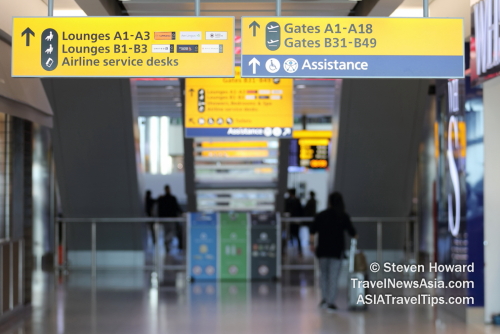 London Heathrow Airport Expands Partnership with SITA
London Heathrow Airport Expands Partnership with SITA bp Partners Audi Formula 1 Team
bp Partners Audi Formula 1 Team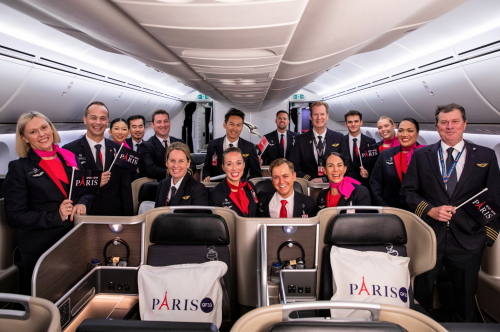 Qantas Launches Non-Stop Flights Between Perth and Paris, France
Qantas Launches Non-Stop Flights Between Perth and Paris, France Marriott Signs First Ritz-Carlton Reserve in UAE
Marriott Signs First Ritz-Carlton Reserve in UAE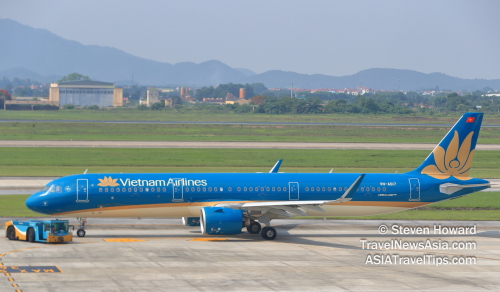 Vietnam Airlines to Launch Flights Between Hanoi and Phnom Penh, Cambodia
Vietnam Airlines to Launch Flights Between Hanoi and Phnom Penh, Cambodia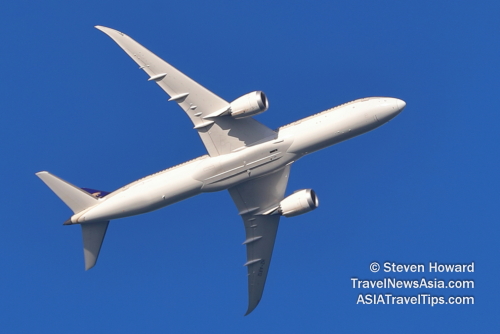 Saudia and flyadeal Increase Flights to Abha; Group Reports Positive H1 Numbers
Saudia and flyadeal Increase Flights to Abha; Group Reports Positive H1 Numbers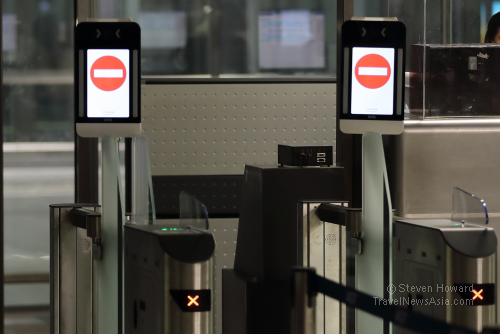 SITA Completes Legal and Regulatory Formalities for Materna IPS Acquisition
SITA Completes Legal and Regulatory Formalities for Materna IPS Acquisition Marriott Opens AC Hotel in Gunpo City, South Korea
Marriott Opens AC Hotel in Gunpo City, South Korea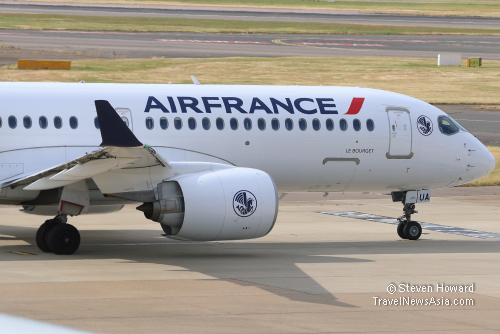 Air France-KLM Signs Codeshare and Interline Agreements with Scandinavian Airlines
Air France-KLM Signs Codeshare and Interline Agreements with Scandinavian Airlines IHG Signs Four Hotels in Spain
IHG Signs Four Hotels in Spain Entries Open for 2025 New Zealand Millennium Cup Regatta
Entries Open for 2025 New Zealand Millennium Cup Regatta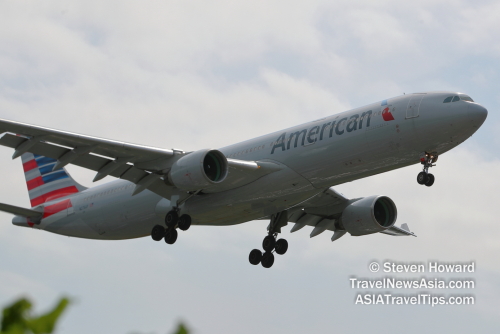 American Airlines to Develop Aviation Maintenance Talent Pipeline with Tulsa Tech
American Airlines to Develop Aviation Maintenance Talent Pipeline with Tulsa Tech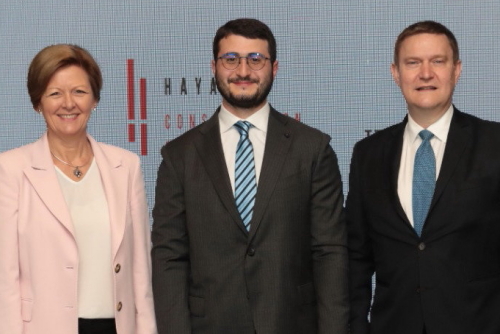 IHG Signs First Vignette Collection Hotel in Almaty, Kazakhstan
IHG Signs First Vignette Collection Hotel in Almaty, Kazakhstan Hahnair Partners German Formula 1 Driver, Nico Hülkenberg
Hahnair Partners German Formula 1 Driver, Nico Hülkenberg Travelport Enhances Platform with AI and ML-Powered Content Curation Layer
Travelport Enhances Platform with AI and ML-Powered Content Curation Layer Cotai Water Jet to Launch Macau Fireworks and Sightseeing Cruises
Cotai Water Jet to Launch Macau Fireworks and Sightseeing Cruises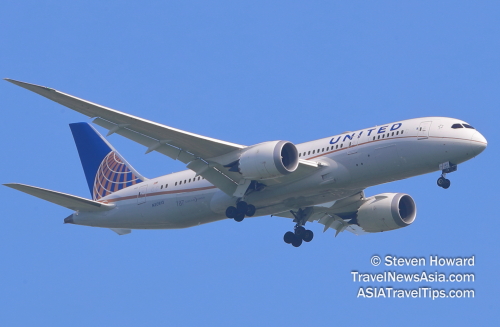 United Airlines Applies to Launch New Daily DCA - SFO Service
United Airlines Applies to Launch New Daily DCA - SFO Service Luminara, a Ritz-Carlton SuperYacht, to Cruise Asia Pacific in 2025-26
Luminara, a Ritz-Carlton SuperYacht, to Cruise Asia Pacific in 2025-26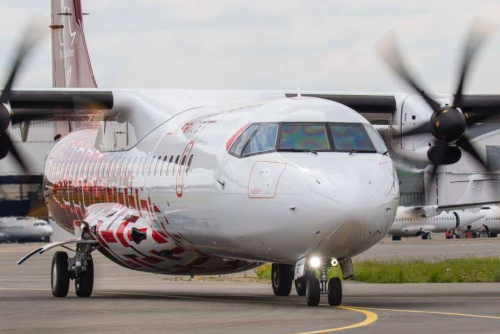 Afrijet Appoints APG as GSA in South Africa
Afrijet Appoints APG as GSA in South Africa Euros 2024 a Record-Breaking Success for Hotels in Cologne, Germany
Euros 2024 a Record-Breaking Success for Hotels in Cologne, Germany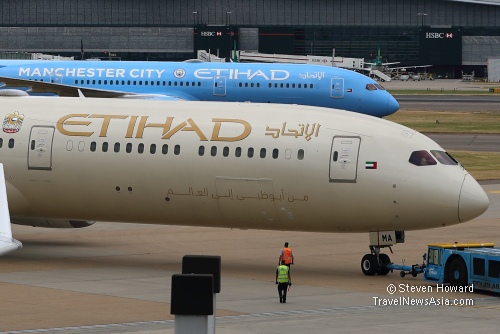 Etihad Airways to Increase Flights to Boston, USA; Operate A350 on Toronto Service
Etihad Airways to Increase Flights to Boston, USA; Operate A350 on Toronto Service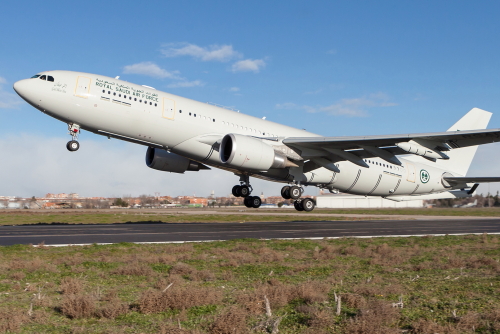 Saudi Arabia Orders Four A330 Multi Role Tanker Transport Aircraft from Airbus
Saudi Arabia Orders Four A330 Multi Role Tanker Transport Aircraft from Airbus Ascott Becomes Official Global Hotels Partner of Chelsea FC; Will Take Over Stadium Hotels
Ascott Becomes Official Global Hotels Partner of Chelsea FC; Will Take Over Stadium Hotels Indochina Kajima Gets Green Light for Construction of Mandarin Oriental Bai Nom in Vietnam
Indochina Kajima Gets Green Light for Construction of Mandarin Oriental Bai Nom in Vietnam Rahul Dangwal Joins Amora Riverwalk Melbourne; Rob Unson Joins Amora Brisbane
Rahul Dangwal Joins Amora Riverwalk Melbourne; Rob Unson Joins Amora Brisbane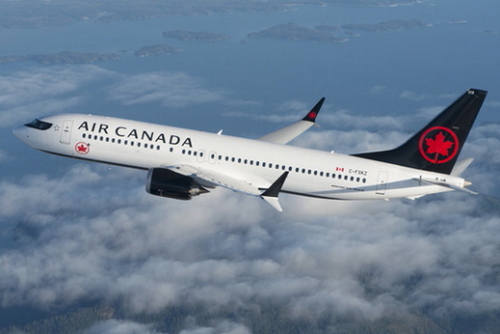 Air Canada Signs Deal for Eight Boeing 737-8 Aircraft
Air Canada Signs Deal for Eight Boeing 737-8 Aircraft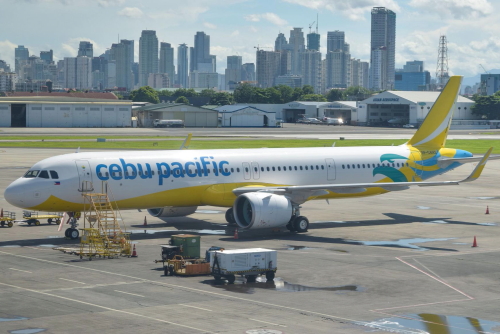 Cebu Pacific Takes Delivery of 7th Aircraft of the Year
Cebu Pacific Takes Delivery of 7th Aircraft of the Year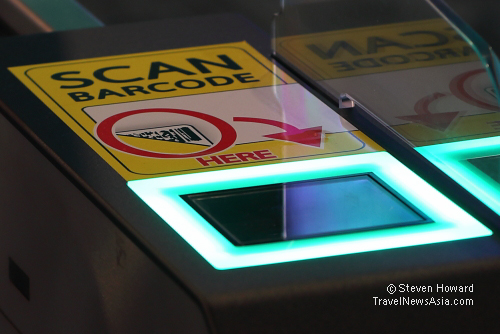 SITA Reports Record Results; Future of Air Travel - Podcast and Video Interview with Sumesh Patel, President of SITA Asia Pacific
SITA Reports Record Results; Future of Air Travel - Podcast and Video Interview with Sumesh Patel, President of SITA Asia Pacific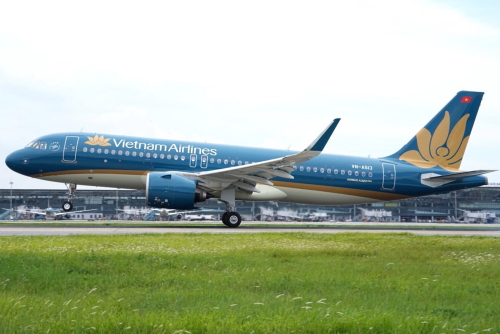 Vietnam Airlines Takes Delivery of First Airbus A320neo
Vietnam Airlines Takes Delivery of First Airbus A320neo Marriott Opens 100th Sheraton Hotel in Greater China
Marriott Opens 100th Sheraton Hotel in Greater China Syahreza Ishwara Appointed GM of Anantara Koh Yao Yai Resort & Villas in Thailand
Syahreza Ishwara Appointed GM of Anantara Koh Yao Yai Resort & Villas in Thailand Tiong Nam Hospitality Adds Marina in Puteri Harbour, Malaysia to Portfolio
Tiong Nam Hospitality Adds Marina in Puteri Harbour, Malaysia to Portfolio Sabah Tourism Board Signs 5-Year Agreement with AirAsia
Sabah Tourism Board Signs 5-Year Agreement with AirAsia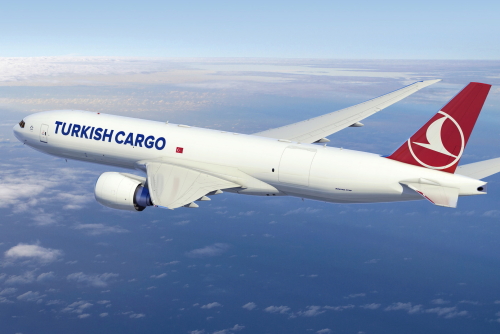 Turkish Airlines to Expand Cargo Fleet with Four Boeing 777 Freighters
Turkish Airlines to Expand Cargo Fleet with Four Boeing 777 Freighters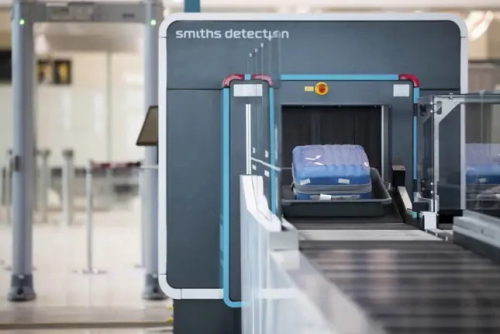 Zurich Airport to Trial Security Solutions from Smiths Detection
Zurich Airport to Trial Security Solutions from Smiths Detection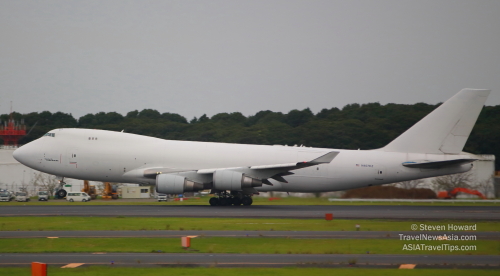 IATA Reports Global Air Cargo Data for May 2024
IATA Reports Global Air Cargo Data for May 2024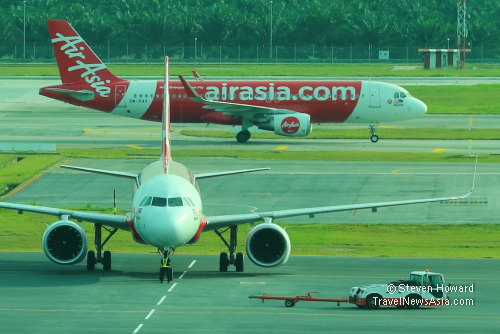 AirAsia Launches KL - Sihanoukville Flights; Confirms KL - Labuan Bajo Service
AirAsia Launches KL - Sihanoukville Flights; Confirms KL - Labuan Bajo Service Inaugural Tourism Seasonality Summit to Take Place at Routes World 2024 in Bahrain
Inaugural Tourism Seasonality Summit to Take Place at Routes World 2024 in Bahrain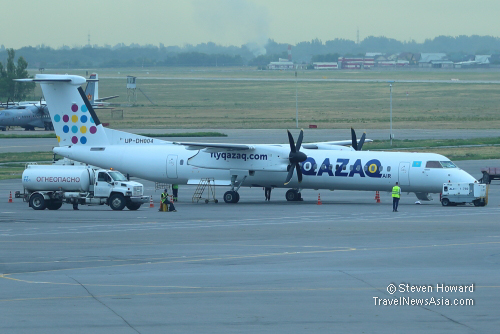 Hahnair Adds 10 Airlines to HR-169 Ticket Solution
Hahnair Adds 10 Airlines to HR-169 Ticket Solution WFS Opens Fifth Cargo Terminal at Adolfo Suarez Madrid-Barajas Airport in Spain
WFS Opens Fifth Cargo Terminal at Adolfo Suarez Madrid-Barajas Airport in Spain Four Senior Appointments at New Dusit Thani Bangkok Hotel
Four Senior Appointments at New Dusit Thani Bangkok Hotel Onyx Opens First Shama Hotel and Serviced Apartments in Malaysia
Onyx Opens First Shama Hotel and Serviced Apartments in Malaysia IHG Signs First Hotel in Kashmir
IHG Signs First Hotel in Kashmir World's Largest Aloft Hotel Appoints Tan Kim Seng as General Manager
World's Largest Aloft Hotel Appoints Tan Kim Seng as General Manager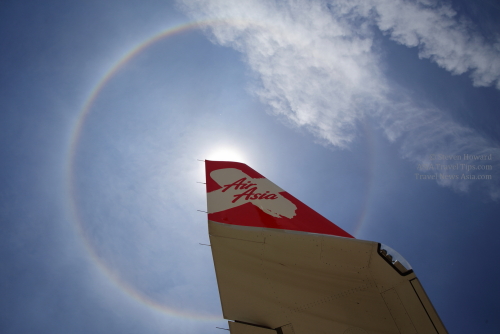 AirAsia X to Launch Flights Between Kuala Lumpur and Nairobi, Kenya
AirAsia X to Launch Flights Between Kuala Lumpur and Nairobi, Kenya Minor Signs Deal to Rebrand Peace Resort Samui as NH Collection Samui
Minor Signs Deal to Rebrand Peace Resort Samui as NH Collection Samui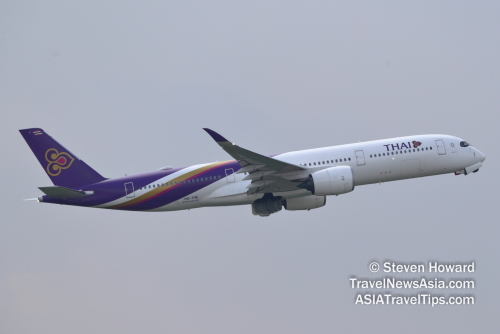 Thai Airways Resumes Flights to Milan and Oslo
Thai Airways Resumes Flights to Milan and Oslo Kylie Minogue to Perform at Mandarin Oriental Bodrum's 10th Anniversary Party
Kylie Minogue to Perform at Mandarin Oriental Bodrum's 10th Anniversary Party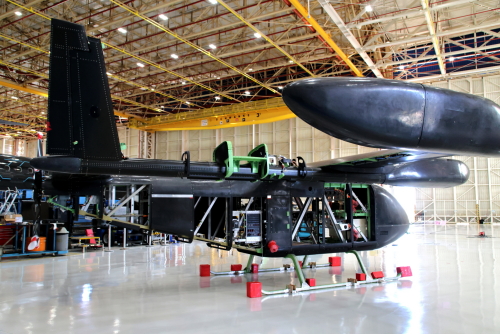 Eve Air Mobility Raises US$94 Million in New Equity Financing
Eve Air Mobility Raises US$94 Million in New Equity Financing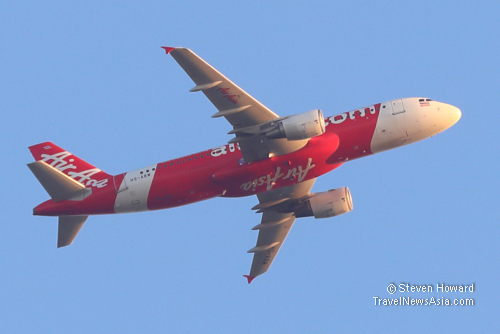 Thai AirAsia Launches Suvarnabhumi - Hat Yai Flights
Thai AirAsia Launches Suvarnabhumi - Hat Yai Flights Jesper Larsen Returns to Vietnam as GM of InterContinental Halong Bay Resort and Residences
Jesper Larsen Returns to Vietnam as GM of InterContinental Halong Bay Resort and Residences Six Key Appointments at Ascott
Six Key Appointments at Ascott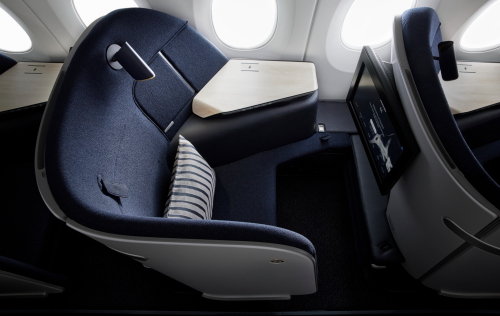 Finnair Completes Long-Haul Cabin Renewal
Finnair Completes Long-Haul Cabin Renewal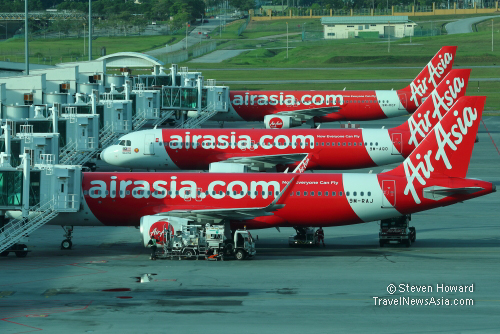 AirAsia to Launch Flights Between Kuala Lumpur and Chiang Rai, Thailand
AirAsia to Launch Flights Between Kuala Lumpur and Chiang Rai, Thailand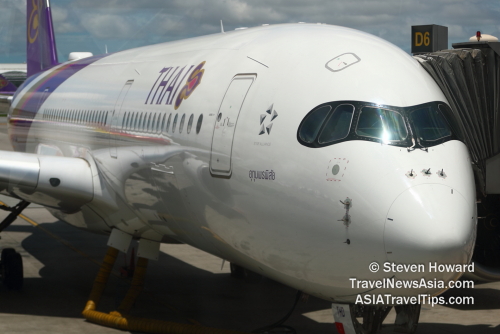 Thai Airways Expands Partnership with Amadeus
Thai Airways Expands Partnership with Amadeus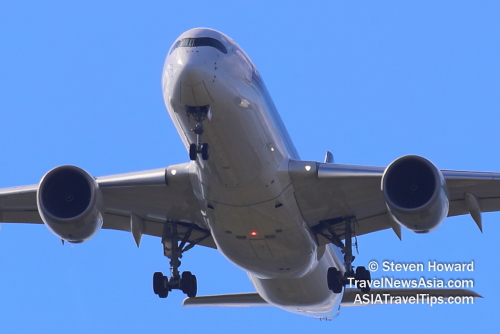 Asia Pacific Airlines Carried 27.9 Million International Passengers in May
Asia Pacific Airlines Carried 27.9 Million International Passengers in May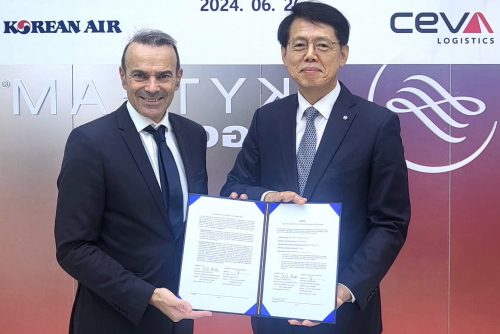 Korean Air Cargo Expands SAF Program with CEVA Logistics Partnership
Korean Air Cargo Expands SAF Program with CEVA Logistics Partnership IHG Signs First Holiday Inn Express Hotel in Egypt
IHG Signs First Holiday Inn Express Hotel in Egypt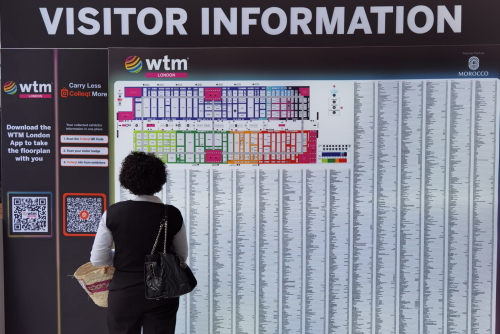 Ticket Booking Opens for World Travel Market 2024 in London
Ticket Booking Opens for World Travel Market 2024 in London Spotnana Enhances Service with Sabre's NDC Content
Spotnana Enhances Service with Sabre's NDC Content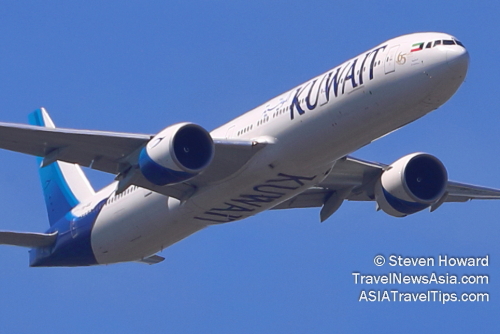 Codeshare Flights Between Kuwait and Thai Airways Take Off
Codeshare Flights Between Kuwait and Thai Airways Take Off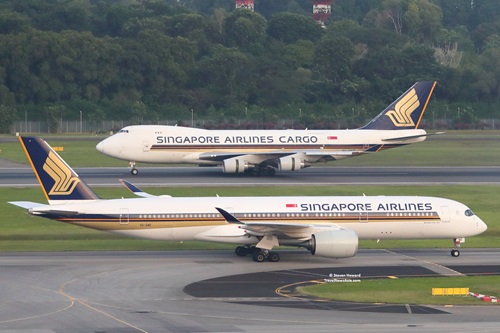 Singapore Airlines Extends Cargo Handling Contracts with WFS
Singapore Airlines Extends Cargo Handling Contracts with WFS Courtyard by Marriott Hotel Opens Near Colva Beach in Goa, India
Courtyard by Marriott Hotel Opens Near Colva Beach in Goa, India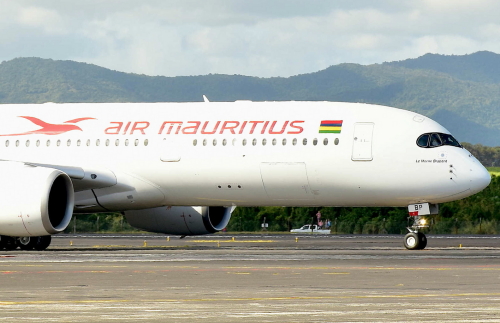 Air Mauritius Joins AirAsia Move OTA
Air Mauritius Joins AirAsia Move OTA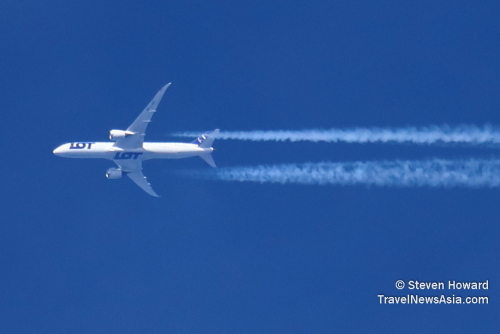 LOT Polish Airlines Appoints APG as Online GSA in Saudi Arabia
LOT Polish Airlines Appoints APG as Online GSA in Saudi Arabia Onyx Hospitality Expands Shama Hub Brand to Hangzhou and Hong Kong
Onyx Hospitality Expands Shama Hub Brand to Hangzhou and Hong Kong Minor to Take Over Management of Iconic Hotel in Bangkok, Thailand
Minor to Take Over Management of Iconic Hotel in Bangkok, Thailand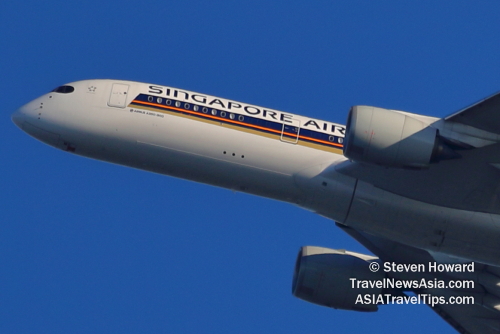 Singapore Airlines to Launch Flights to Beijing Daxing; Increase Beijing Capital Service
Singapore Airlines to Launch Flights to Beijing Daxing; Increase Beijing Capital Service Marriott Opens Fourth Courtyard Hotel in Malaysia
Marriott Opens Fourth Courtyard Hotel in Malaysia Momentus Hospitality Appoints Chow Keng Hai as General Manager
Momentus Hospitality Appoints Chow Keng Hai as General Manager Helicopter Designed for French Special Forces Begins Flight Tests
Helicopter Designed for French Special Forces Begins Flight Tests Westin Resort Opens in Cam Ranh, Vietnam
Westin Resort Opens in Cam Ranh, Vietnam Google Wallet Compatibility Added to Vingcard's Digital Key Solution, Mobile Access
Google Wallet Compatibility Added to Vingcard's Digital Key Solution, Mobile Access Cross Signs New-Build Resort on Batam Island in Indonesia
Cross Signs New-Build Resort on Batam Island in Indonesia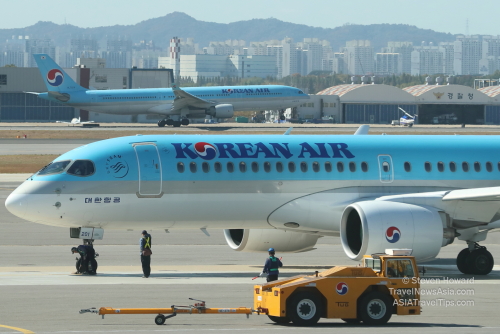 Korean Air Increasing Select Flights to China and Japan
Korean Air Increasing Select Flights to China and Japan Air Astana Donates Upcycled Aircraft Furniture to Almaty Airport
Air Astana Donates Upcycled Aircraft Furniture to Almaty Airport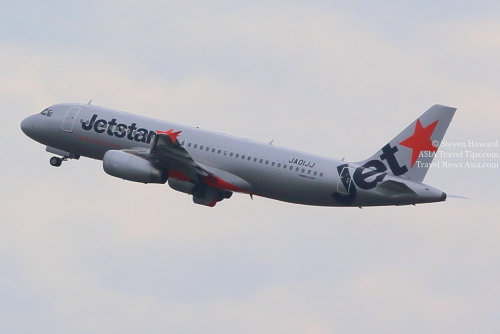 Jetstar Asia Resumes Flights Between Singapore and Clark, Philippines
Jetstar Asia Resumes Flights Between Singapore and Clark, Philippines Sabre Hospitality to Showcase SynXis Concierge.AI at HITEC 2024
Sabre Hospitality to Showcase SynXis Concierge.AI at HITEC 2024 St. Regis Resort Opens in Al Mouj, Oman
St. Regis Resort Opens in Al Mouj, Oman Percy Muncherji and Ron Cusiter Join Thailand's Centara Hotels and Resorts
Percy Muncherji and Ron Cusiter Join Thailand's Centara Hotels and Resorts Four Seasons Yachts Unveils Details of More Voyages Planned for 2026
Four Seasons Yachts Unveils Details of More Voyages Planned for 2026 Sabre to Upgrade Sun Siyam Resorts' Distribution and Retailing Strategy
Sabre to Upgrade Sun Siyam Resorts' Distribution and Retailing Strategy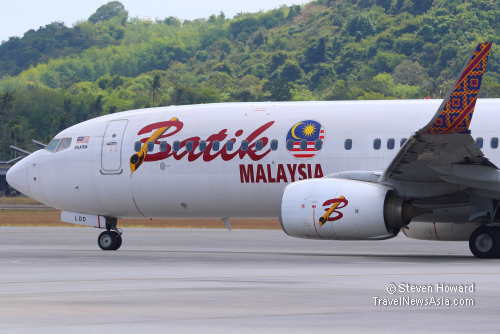 Positive Outlook as Asia Pacific Airlines Return to Profitability
Positive Outlook as Asia Pacific Airlines Return to Profitability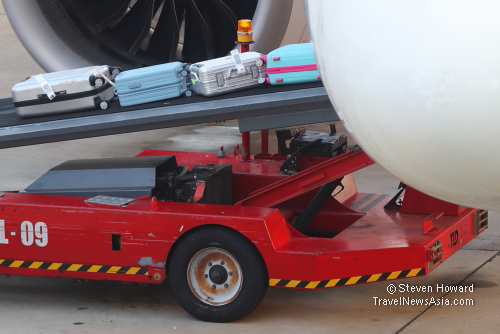 SITA Reports Continued Reduction in Mishandled Baggage by Air Transport Industry
SITA Reports Continued Reduction in Mishandled Baggage by Air Transport Industry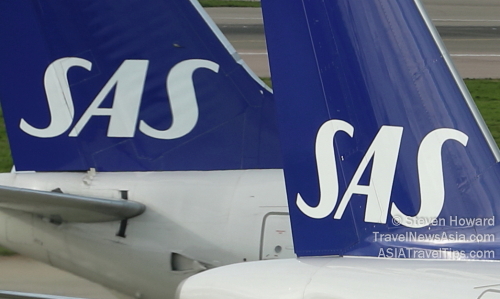 Scandinavian Airlines Launches Daily Flights Between Copenhagen and Atlanta, USA
Scandinavian Airlines Launches Daily Flights Between Copenhagen and Atlanta, USA Belgium Orders 17 Airbus H145M Helicopters
Belgium Orders 17 Airbus H145M Helicopters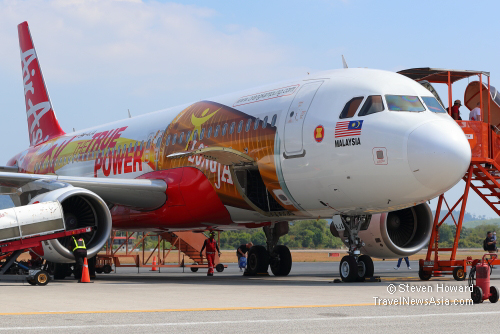 AirAsia Resumes Direct Flights Between Kuala Lumpur and Pattaya, Thailand
AirAsia Resumes Direct Flights Between Kuala Lumpur and Pattaya, Thailand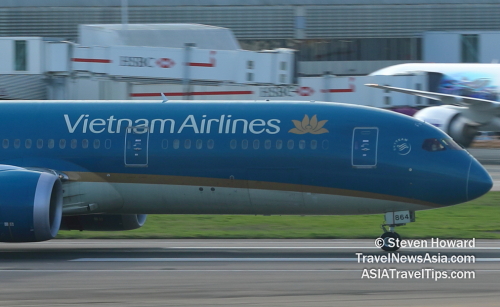 Vietnam Airlines Launches Flights Between Saigon and Manila, Philippines
Vietnam Airlines Launches Flights Between Saigon and Manila, Philippines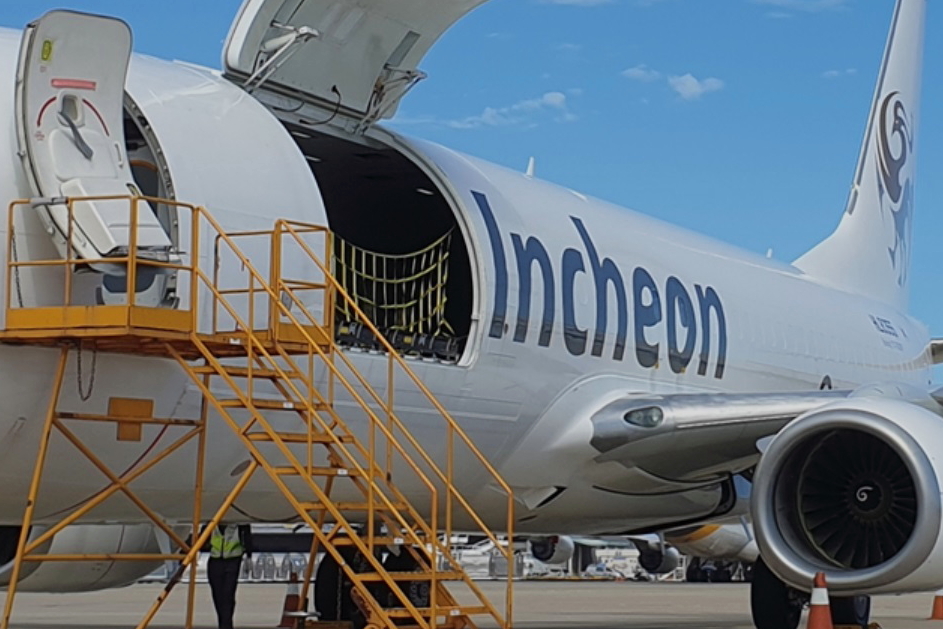 Korean Air Selects Air Incheon as Preferred Bidder for Asiana's Freighter Business
Korean Air Selects Air Incheon as Preferred Bidder for Asiana's Freighter Business Marriott to Significantly Expand Portfolio of Hotels in France
Marriott to Significantly Expand Portfolio of Hotels in France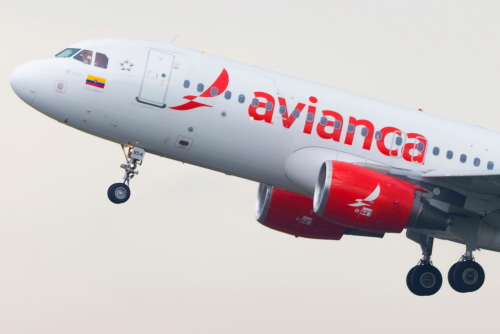 Avianca Resumes Eleven International Routes
Avianca Resumes Eleven International Routes IHG Signs First Kimpton Resort in Hawaii
IHG Signs First Kimpton Resort in Hawaii Laurence Neumann Joins Gran Melia Nha Trang as DOSM
Laurence Neumann Joins Gran Melia Nha Trang as DOSM Frasers Hospitality Expands Sabre Partnership with SynXis Retailing
Frasers Hospitality Expands Sabre Partnership with SynXis Retailing IHG Signs Holiday Inn Resort in Kufri, India
IHG Signs Holiday Inn Resort in Kufri, India Charles Szar Joins AeroTransCargo as President
Charles Szar Joins AeroTransCargo as President Saudi Arabia's Travel and Tourism Sector Continues to Break Records
Saudi Arabia's Travel and Tourism Sector Continues to Break Records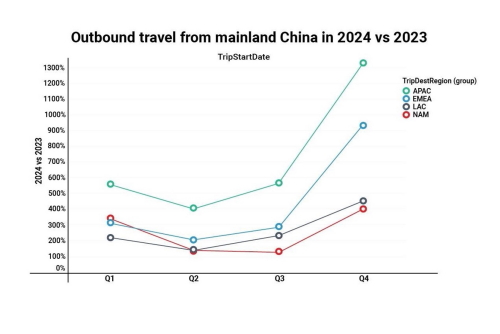 Sabre Market Intelligence Reveals Key Insights into China's Outbound Travel Trends
Sabre Market Intelligence Reveals Key Insights into China's Outbound Travel Trends Geoff Donaghy, CEO of ICC Sydney, Resigns
Geoff Donaghy, CEO of ICC Sydney, Resigns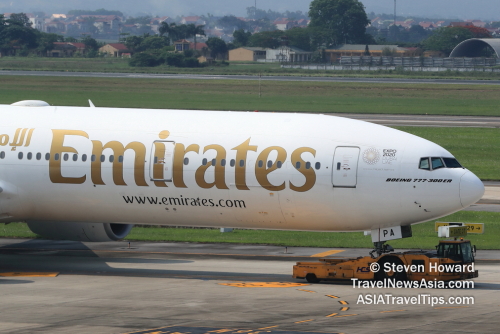 Emirates to Launch Dubai - Seychelles - Madagascar Flights
Emirates to Launch Dubai - Seychelles - Madagascar Flights Pan Pacific Returns to Jakarta with Tallest Luxury Hotel in the City
Pan Pacific Returns to Jakarta with Tallest Luxury Hotel in the City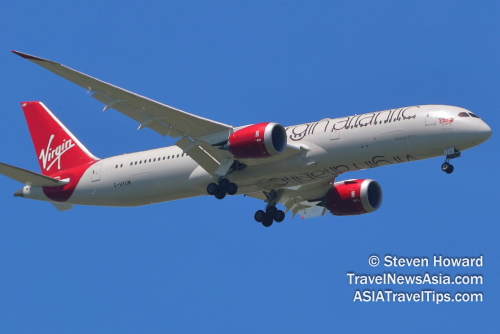 Saudia and Virgin Atlantic Sign Codeshare Agreement
Saudia and Virgin Atlantic Sign Codeshare Agreement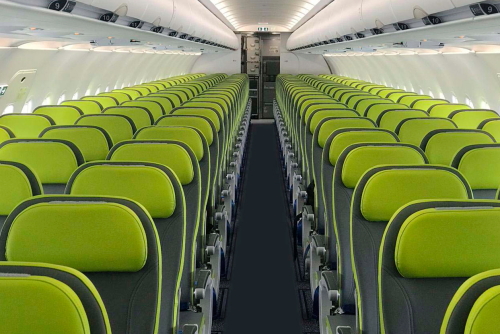 SalamAir to Launch Flights Between Muscat and Delhi, India
SalamAir to Launch Flights Between Muscat and Delhi, India Radisson to Expand Red Hotel Brand to Bangkok, Thailand
Radisson to Expand Red Hotel Brand to Bangkok, Thailand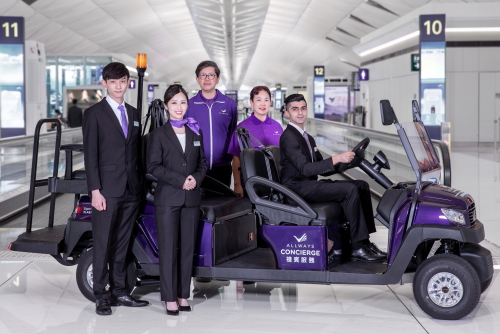 Plaza Premium Expands Number of Personalised Services at Hong Kong Airport
Plaza Premium Expands Number of Personalised Services at Hong Kong Airport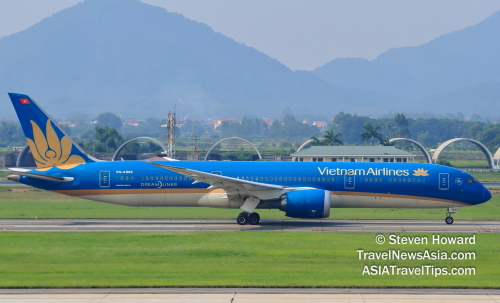 Vietnam Airlines Joins IATA CO2 Connect
Vietnam Airlines Joins IATA CO2 Connect Dusit Signs Dual-Branded Hotel and Residences in Phuket, Thailand
Dusit Signs Dual-Branded Hotel and Residences in Phuket, Thailand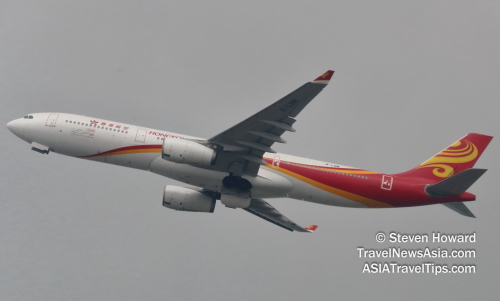 Hong Kong Airlines to Launch Flights to Da Nang, Vietnam
Hong Kong Airlines to Launch Flights to Da Nang, Vietnam Singapore University Working with SITA to Upgrade Air Travel Experience
Singapore University Working with SITA to Upgrade Air Travel Experience Germany Orders 38 Airbus H225 Helicopters for Bundespolizei
Germany Orders 38 Airbus H225 Helicopters for Bundespolizei AI to Reduce Food Waste at All Mandarin Oriental Hotels Globally
AI to Reduce Food Waste at All Mandarin Oriental Hotels Globally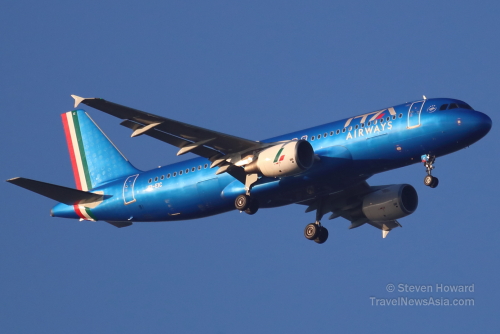 ITA Airways to Upgrade Network Infrastructure with SITA Connect Go
ITA Airways to Upgrade Network Infrastructure with SITA Connect Go Accor to Implement Amadeus' Cloud-Based Central Reservation System
Accor to Implement Amadeus' Cloud-Based Central Reservation System Gonzalo Aguilar to Join Minor Hotels as CEO - Europe & Americas
Gonzalo Aguilar to Join Minor Hotels as CEO - Europe & Americas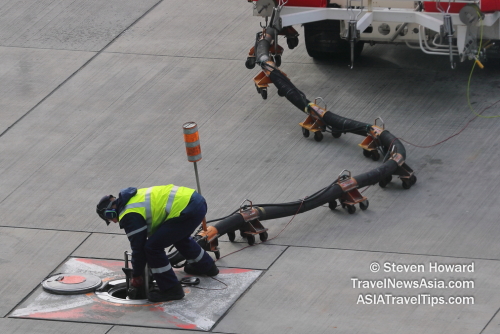 Cathay Pacific and Singapore Airlines to Collaborate on Sustainable Initiatives
Cathay Pacific and Singapore Airlines to Collaborate on Sustainable Initiatives Minor Takes Over Management of Two Hotels in Sri Lanka
Minor Takes Over Management of Two Hotels in Sri Lanka CapitaLand Completes Acquisition of Standard at Columbia Student Accommodation in USA
CapitaLand Completes Acquisition of Standard at Columbia Student Accommodation in USA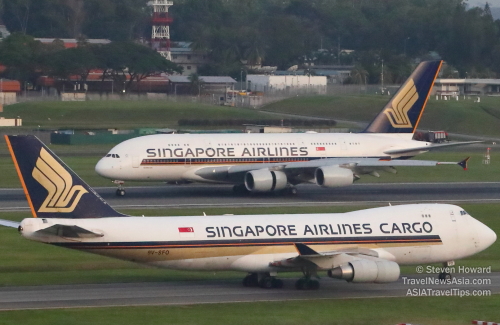 Singapore Airlines Renews Slot and Schedule Manager Agreement with Sabre
Singapore Airlines Renews Slot and Schedule Manager Agreement with Sabre Austrian Airlines to Increase Flights to Bangkok, Thailand
Austrian Airlines to Increase Flights to Bangkok, Thailand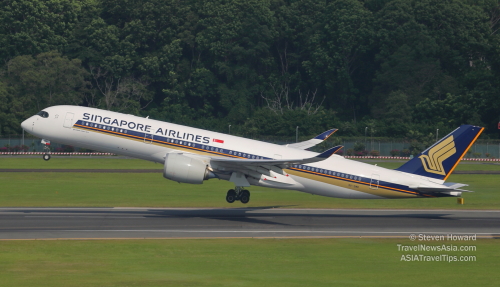 Riyadh Air and Singapore Airlines to Explore Interline Connectivity and More
Riyadh Air and Singapore Airlines to Explore Interline Connectivity and More Mandarin Oriental Opens Second Hotel in London, England
Mandarin Oriental Opens Second Hotel in London, England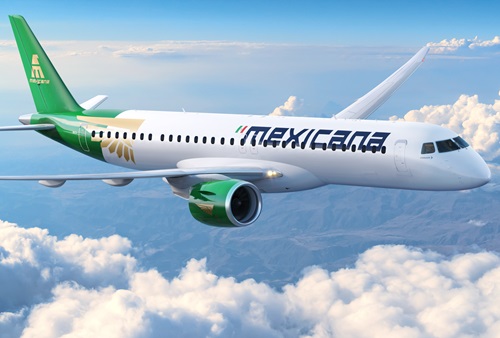 Mexicana Orders 20 Embraer E2 Aircraft
Mexicana Orders 20 Embraer E2 Aircraft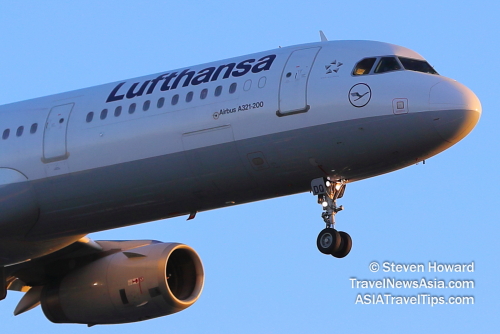 Lufthansa Launches Flights Between Munich and Seattle, USA
Lufthansa Launches Flights Between Munich and Seattle, USA Airbus to Showcase Wingman Concept at ILA Berlin
Airbus to Showcase Wingman Concept at ILA Berlin Marriott Resort Opens in Lampung, Indonesia
Marriott Resort Opens in Lampung, Indonesia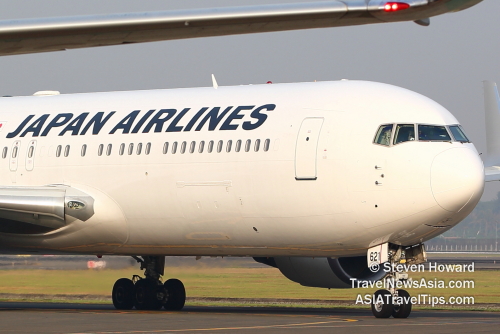 IndiGo and Japan Airlines Agree to Codeshare
IndiGo and Japan Airlines Agree to Codeshare Ritz-Carlton Reserve Opens on Ummahat Island in Saudi Arabia
Ritz-Carlton Reserve Opens on Ummahat Island in Saudi Arabia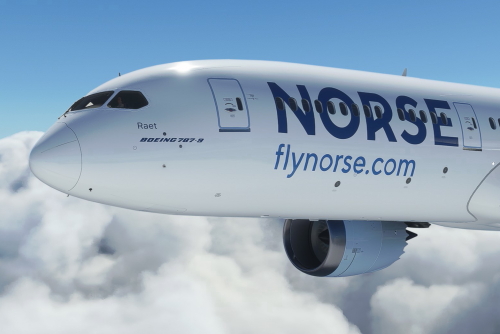 Norse Atlantic Airways Launches Flights Between Athens and New York, USA
Norse Atlantic Airways Launches Flights Between Athens and New York, USA British Airways Opens Refurbished Lounge at Lagos Airport in Nigeria
British Airways Opens Refurbished Lounge at Lagos Airport in Nigeria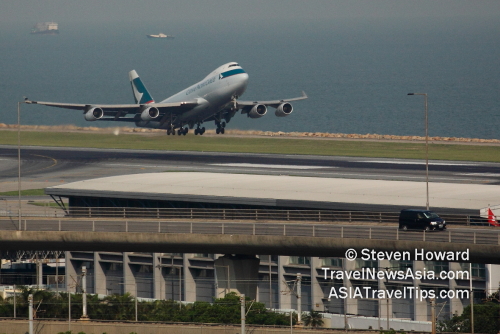 Hong Kong Airport Reports Robust Increases in Passenger and Cargo Traffic
Hong Kong Airport Reports Robust Increases in Passenger and Cargo Traffic Marriott Opens Luxury Collection Resort in Labuan Bajo, Indonesia
Marriott Opens Luxury Collection Resort in Labuan Bajo, Indonesia Dusit Expands Senior Development Team with Two Executive Appointments
Dusit Expands Senior Development Team with Two Executive Appointments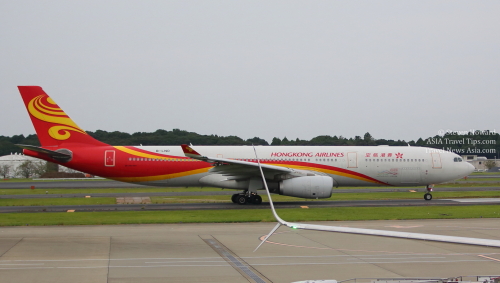 Hong Kong Airlines to Launch Flights to Taichung, Taiwan
Hong Kong Airlines to Launch Flights to Taichung, Taiwan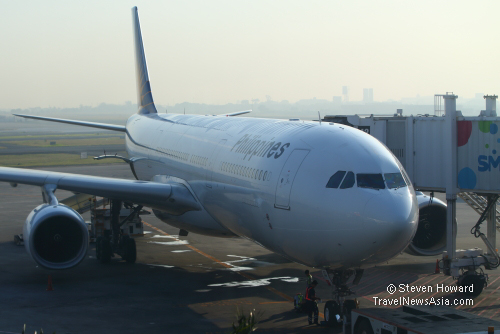 Aviation: RPK Up 11%, ASK Up 9.6 and PLF at 82.4% in April 2024
Aviation: RPK Up 11%, ASK Up 9.6 and PLF at 82.4% in April 2024 Furama to Rebrand Hotel in Sydney, Australia
Furama to Rebrand Hotel in Sydney, Australia IHG Signs Two Crowne Plaza Hotels in Egypt
IHG Signs Two Crowne Plaza Hotels in Egypt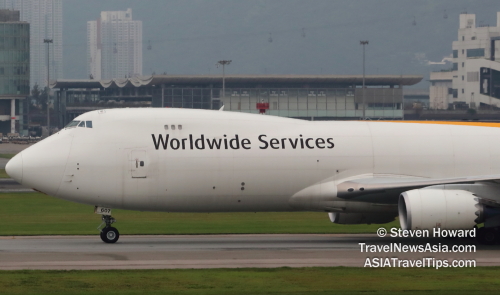 IATA Reports Latest Air Cargo Data
IATA Reports Latest Air Cargo Data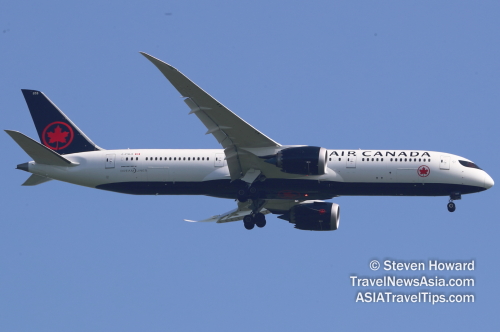 Air Canada Expands Ottawa Network
Air Canada Expands Ottawa Network Marriott Signs Tribute Portfolio Hotels in Chongqing, Jiande and Xiaoshan, China
Marriott Signs Tribute Portfolio Hotels in Chongqing, Jiande and Xiaoshan, China Keishi Spa Swan Valley Relocates to Novotel Perth Murray Street in Australia
Keishi Spa Swan Valley Relocates to Novotel Perth Murray Street in Australia Korean Air's Afforestation Project in Baganuur, Mongolia Celebrates 20th Anniversary
Korean Air's Afforestation Project in Baganuur, Mongolia Celebrates 20th Anniversary Etihad Airways Becomes Main Sponsor of Girona FC
Etihad Airways Becomes Main Sponsor of Girona FC Rolls-Royce Adds Airline Support Baltic to Network of Authorised Service Centers
Rolls-Royce Adds Airline Support Baltic to Network of Authorised Service Centers Radisson Signs Blu Resort in Ho Tram, Vietnam
Radisson Signs Blu Resort in Ho Tram, Vietnam Treamprom Klinhom Joins Moxy Bangkok Ratchaprasong as MarCom Manager
Treamprom Klinhom Joins Moxy Bangkok Ratchaprasong as MarCom Manager The Slate Phuket Launches Promotion for Thai Residents
The Slate Phuket Launches Promotion for Thai Residents Airbus to Establish Tech Hub in Japan
Airbus to Establish Tech Hub in Japan Sabre Embraces Increasing Power of AI to Launch SabreMosaic
Sabre Embraces Increasing Power of AI to Launch SabreMosaic Thailand International Boat Show to Take Place at Phuket Yacht Haven in 2025
Thailand International Boat Show to Take Place at Phuket Yacht Haven in 2025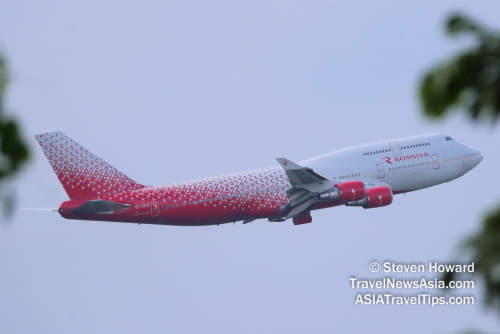 Aeroflot Opens Ticket Sales on Flights Between Krasnoyarsk and Sanya, China
Aeroflot Opens Ticket Sales on Flights Between Krasnoyarsk and Sanya, China Norwegian Cruise Line Unveils Details of 24 Port-Intensive Cruises Across Asia
Norwegian Cruise Line Unveils Details of 24 Port-Intensive Cruises Across Asia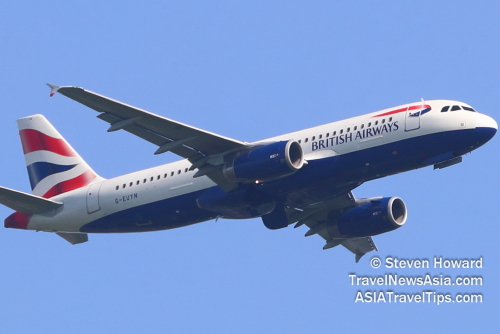 British Airways to Launch Seasonal Flights to Tromsø, Norway
British Airways to Launch Seasonal Flights to Tromsø, Norway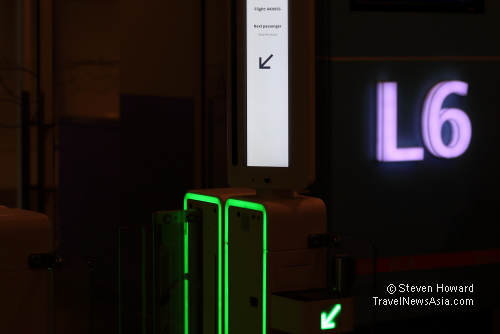 SITA Expands Portfolio of Airport Solutions with Materna IPS Acquisition
SITA Expands Portfolio of Airport Solutions with Materna IPS Acquisition United Airlines Takes Wrexham AFC's Recent Success to New Heights
United Airlines Takes Wrexham AFC's Recent Success to New Heights Peter Tichy Joins Radisson Blu Plaza Bangkok as General Manager
Peter Tichy Joins Radisson Blu Plaza Bangkok as General Manager SMFL LCI Orders 14 Airbus Helicopters
SMFL LCI Orders 14 Airbus Helicopters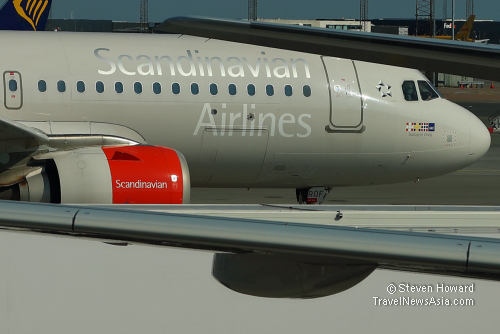 Apollo Extends Charter Contract with Scandinavian Airlines (SAS)
Apollo Extends Charter Contract with Scandinavian Airlines (SAS)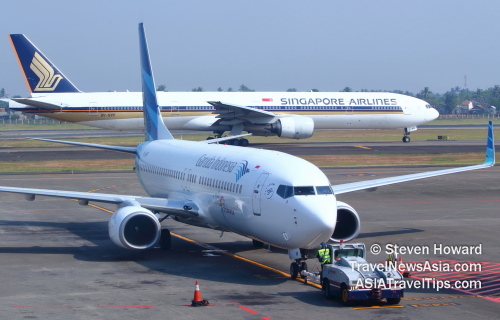 Garuda Indonesia and Singapore Airlines Sign FFP and Revenue Sharing Agreements
Garuda Indonesia and Singapore Airlines Sign FFP and Revenue Sharing Agreements Mandarin Oriental Signs Fifth Luxury Hotel in Italy
Mandarin Oriental Signs Fifth Luxury Hotel in Italy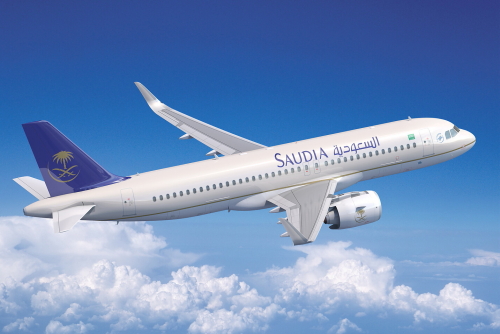 Saudia Signs Firm Order for 105 Airbus Aircraft
Saudia Signs Firm Order for 105 Airbus Aircraft IHG Signs Three Resorts in Turks & Caicos
IHG Signs Three Resorts in Turks & Caicos Plaza Premium Appoints Dr. Syafrina Sharif as Global Head of ESG & Sustainability
Plaza Premium Appoints Dr. Syafrina Sharif as Global Head of ESG & Sustainability TFE Hotels Launches New Loyalty Program
TFE Hotels Launches New Loyalty Program The First Collection at Jumeirah Village Circle Joins Marriott's Tribute Portfolio
The First Collection at Jumeirah Village Circle Joins Marriott's Tribute Portfolio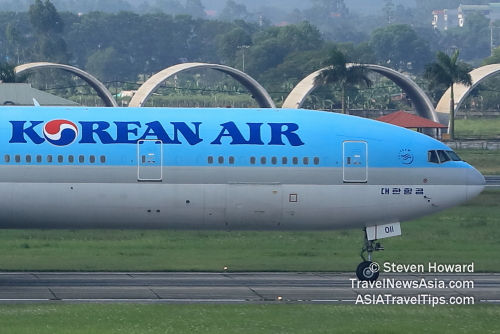 Korean Air Partners AWS for AI-Powered Contact Center
Korean Air Partners AWS for AI-Powered Contact Center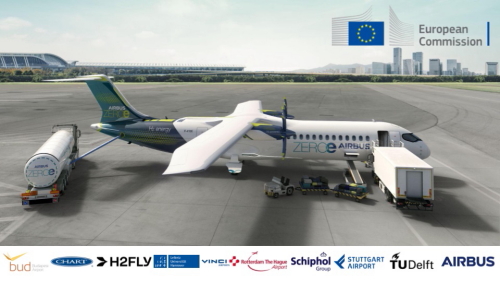 GOLIAT Project to Explore Use of Liquid Hydrogen in Aviation
GOLIAT Project to Explore Use of Liquid Hydrogen in Aviation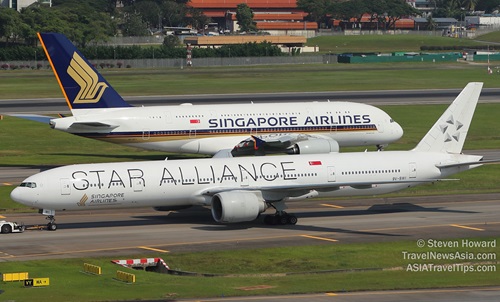 Singapore Airlines to Establish a Foundation
Singapore Airlines to Establish a Foundation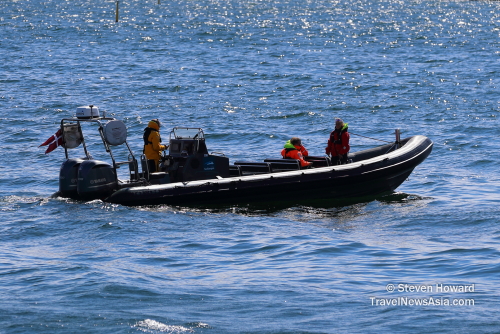 High-Speed Fun in Denmark! HD Video Interview with Aarhus Sea Rangers
High-Speed Fun in Denmark! HD Video Interview with Aarhus Sea Rangers 16 Exclusive HD Video Interviews from Routes Europe 2024 in Aarhus, Denmark
16 Exclusive HD Video Interviews from Routes Europe 2024 in Aarhus, Denmark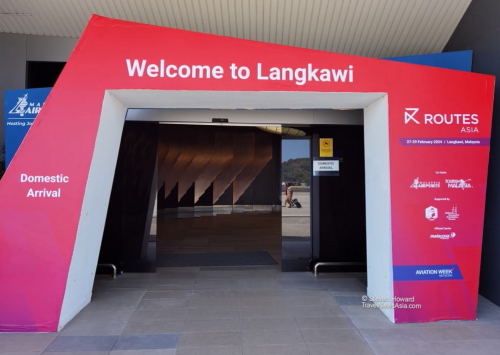 9 Exclusive HD Video Interviews from Routes Asia 2024 in Langkawi, Malaysia
9 Exclusive HD Video Interviews from Routes Asia 2024 in Langkawi, Malaysia 9 Exclusive Video Interviews with VIPs at ASEAN Tourism Forum 2024 in Vientiane, Laos
9 Exclusive Video Interviews with VIPs at ASEAN Tourism Forum 2024 in Vientiane, Laos 8 NTO Press Conferences from the ASEAN Tourism Forum 2024 in Vientiane, Laos
8 NTO Press Conferences from the ASEAN Tourism Forum 2024 in Vientiane, Laos 13 Exclusive HD Video Interviews with VIPs at World Travel Market 2023 in London, England
13 Exclusive HD Video Interviews with VIPs at World Travel Market 2023 in London, England 5 HD Video Interviews from APG World Connect 2023 in Monaco, France
5 HD Video Interviews from APG World Connect 2023 in Monaco, France 15 Exclusive Videos from Routes World 2023 in Istanbul, Türkiye
15 Exclusive Videos from Routes World 2023 in Istanbul, Türkiye























































































































































































































